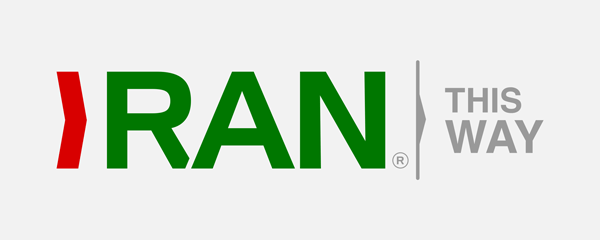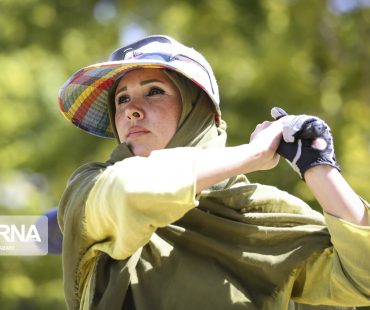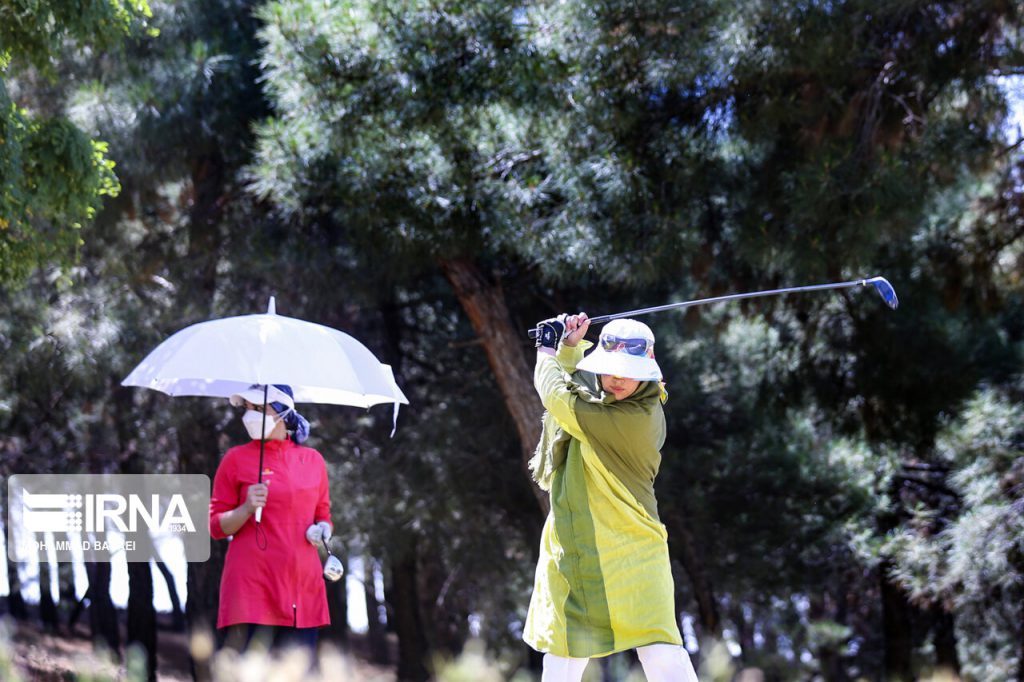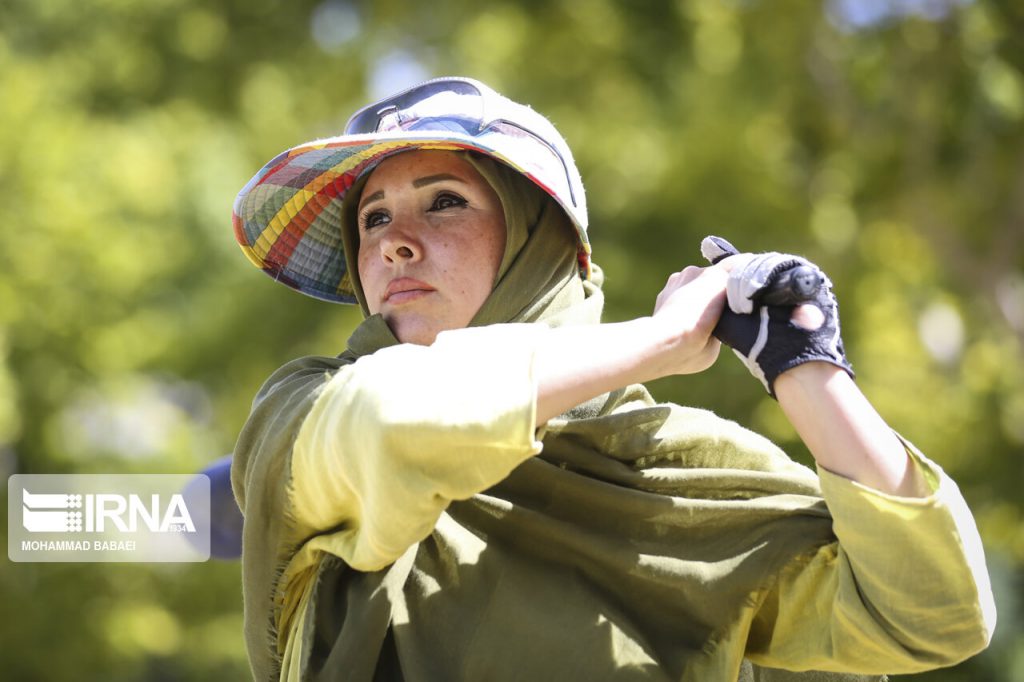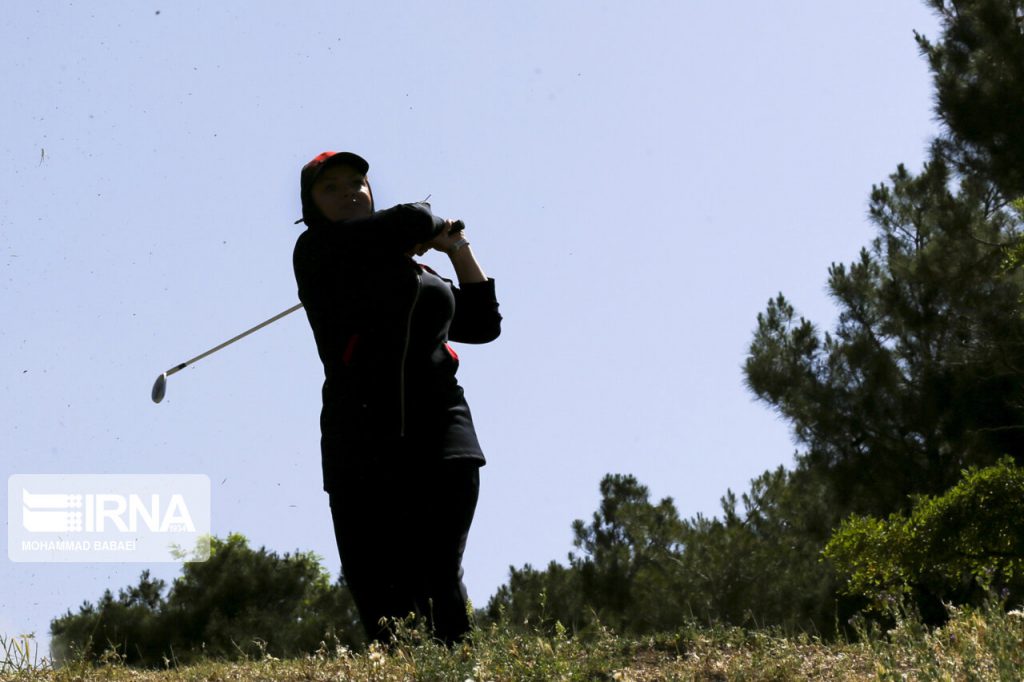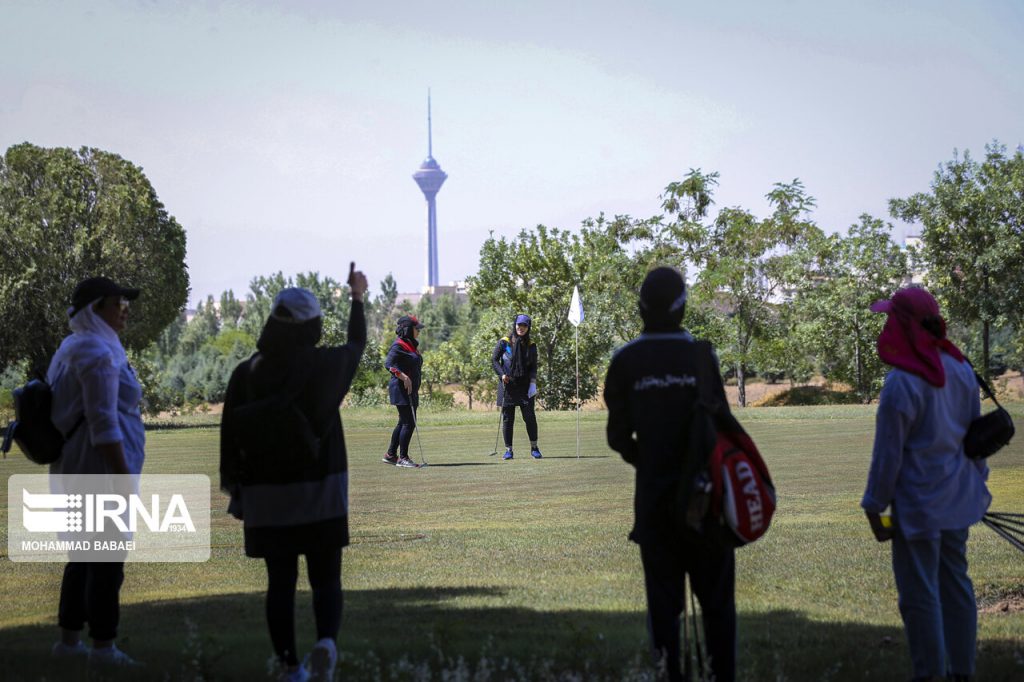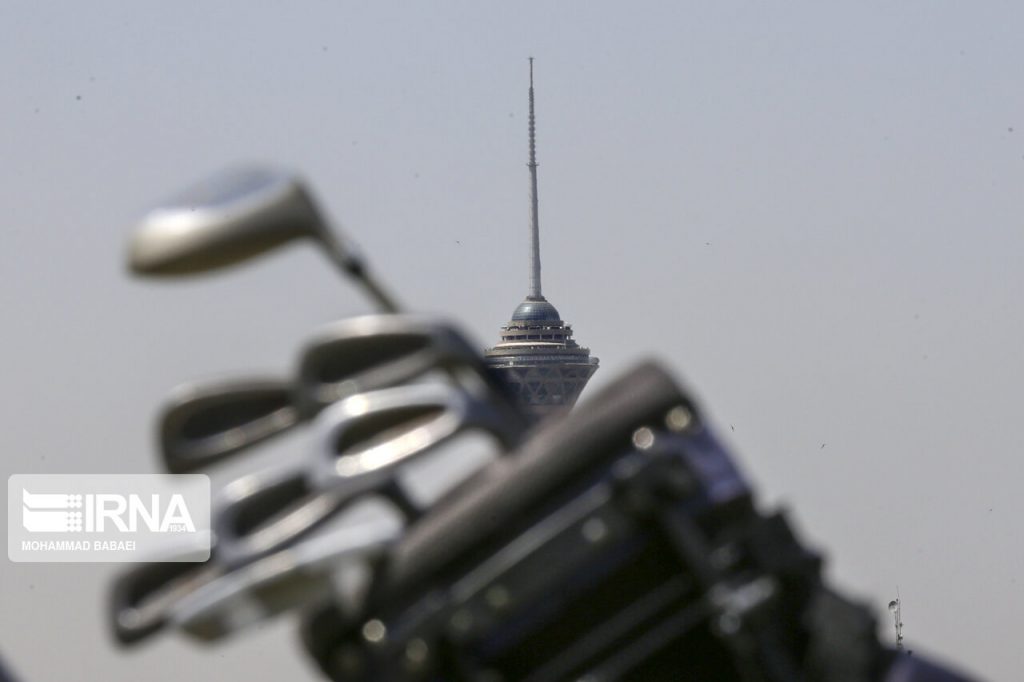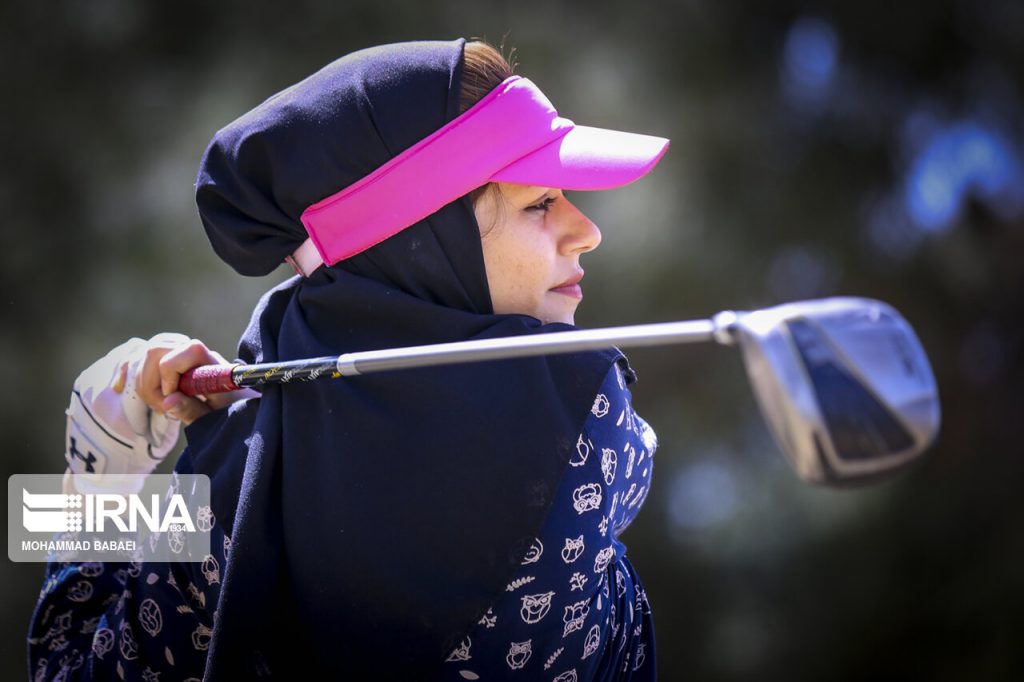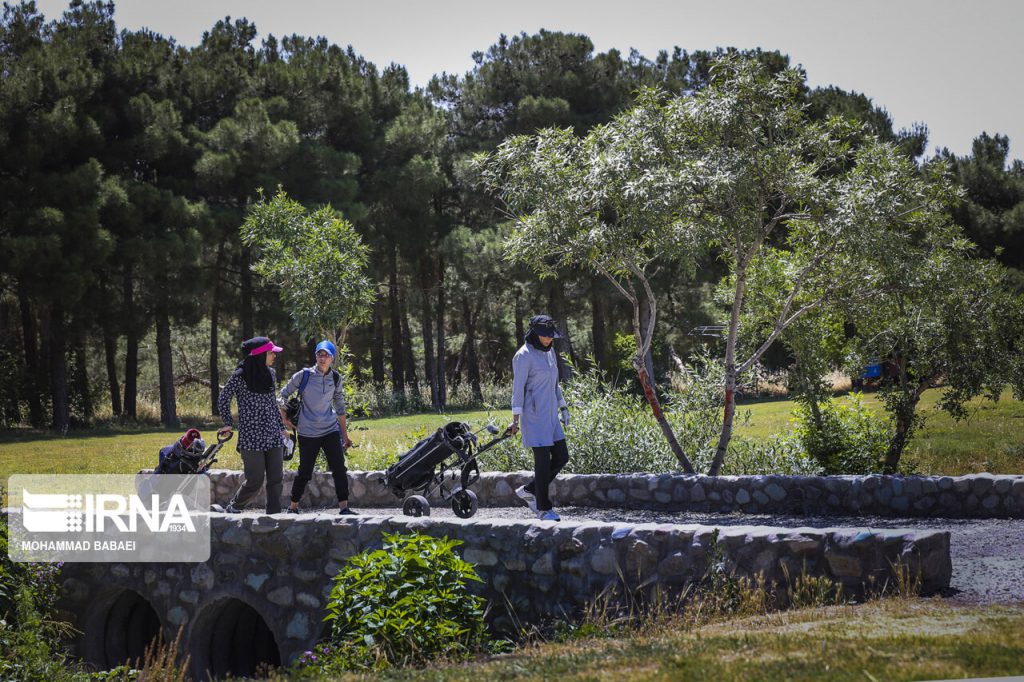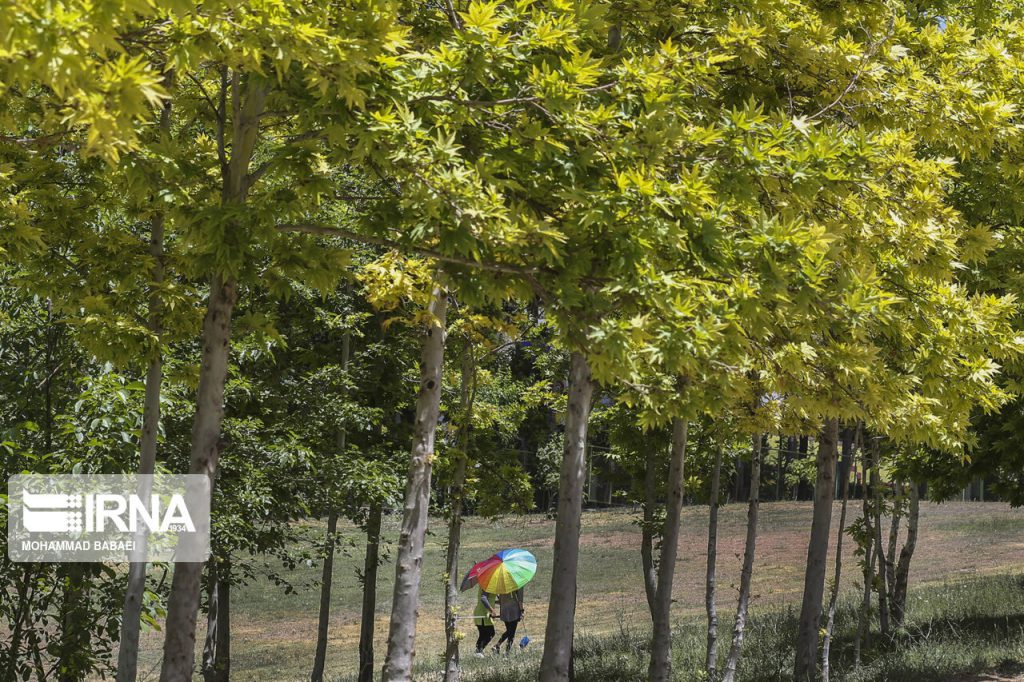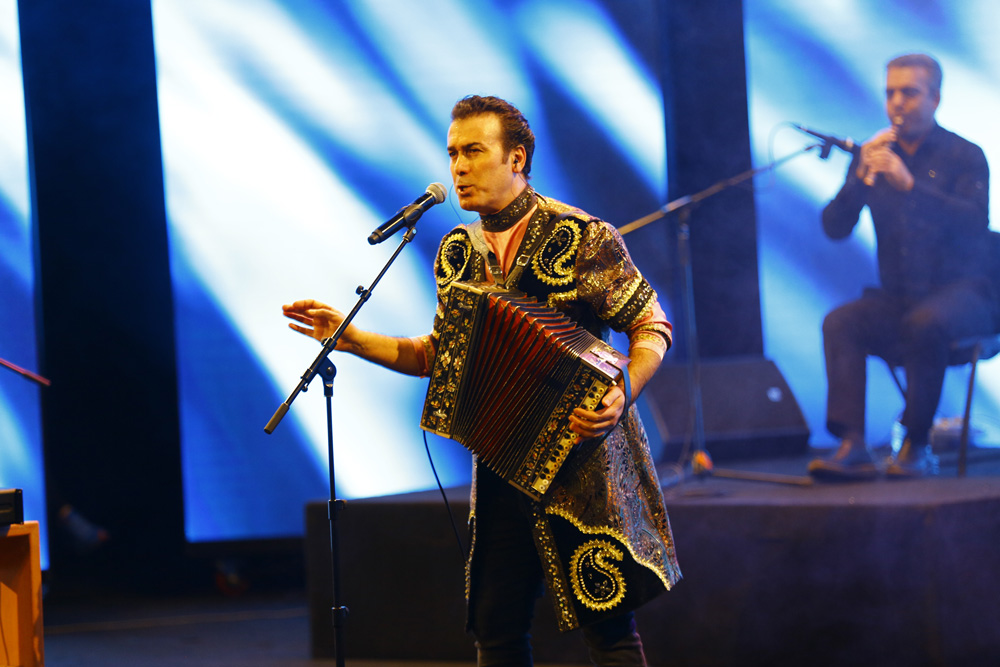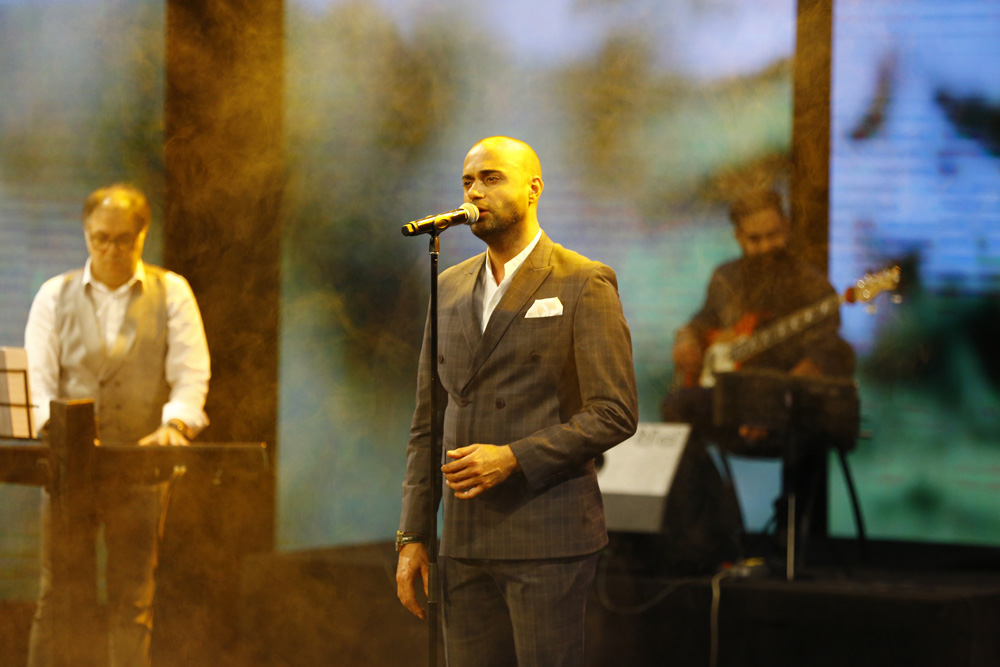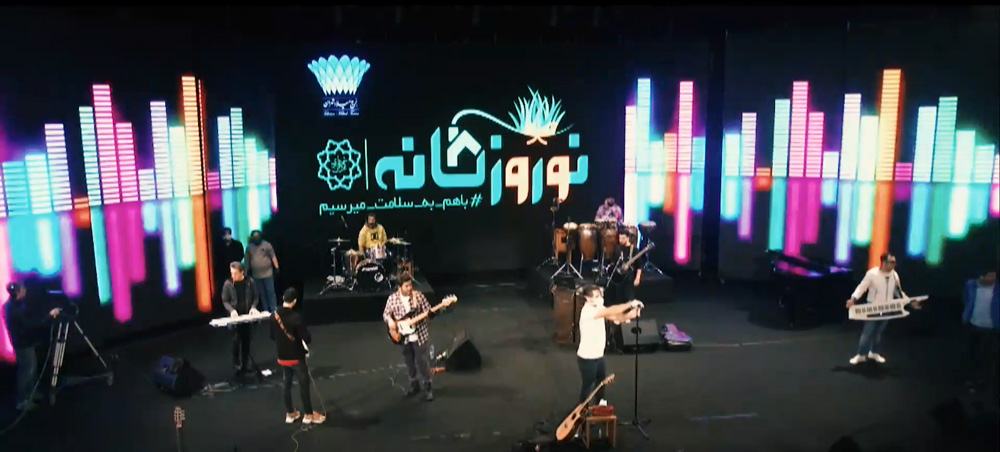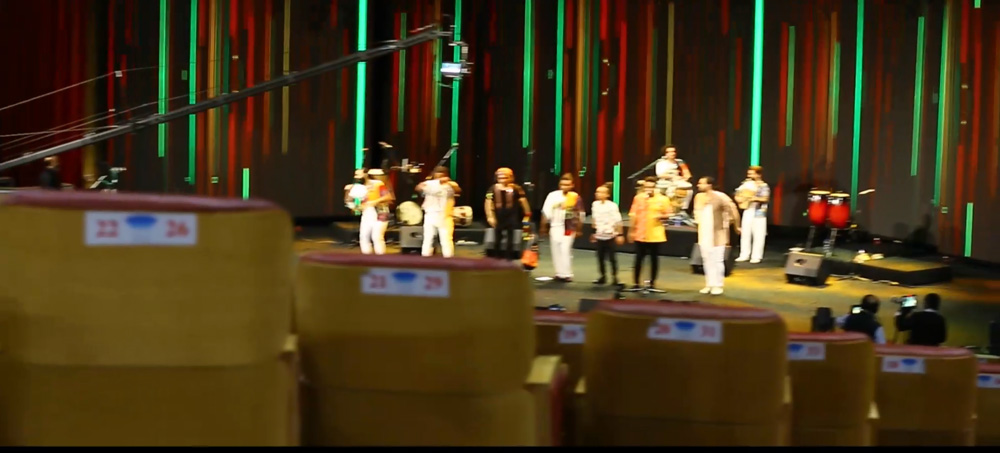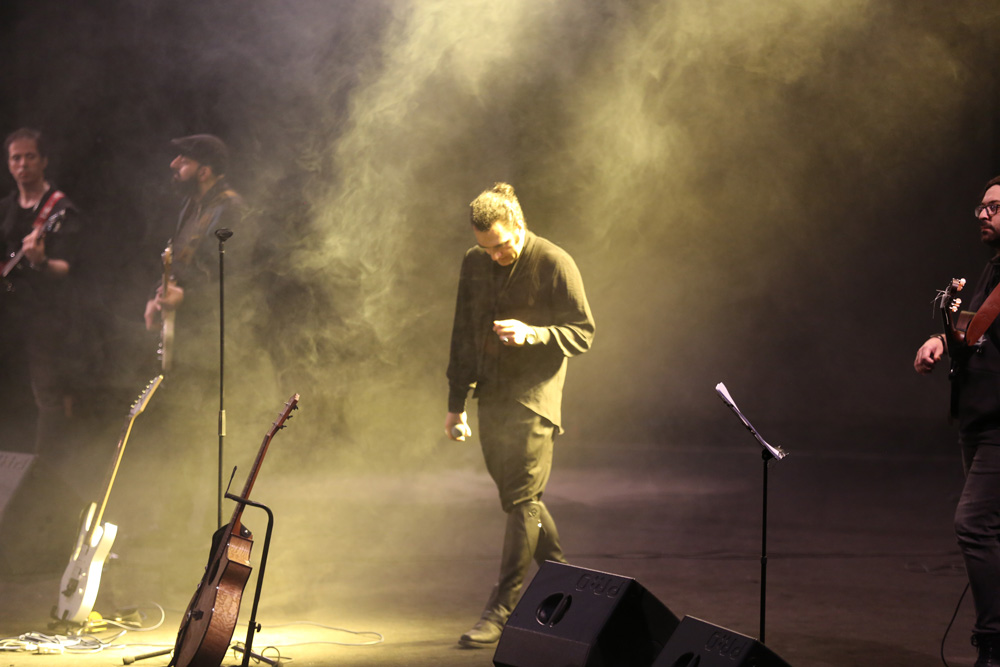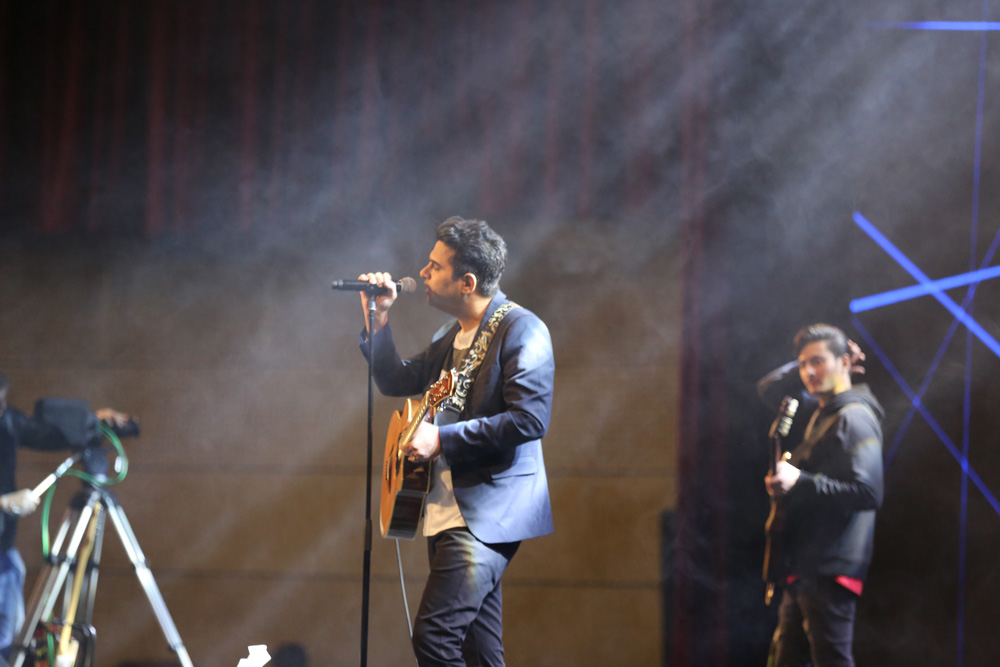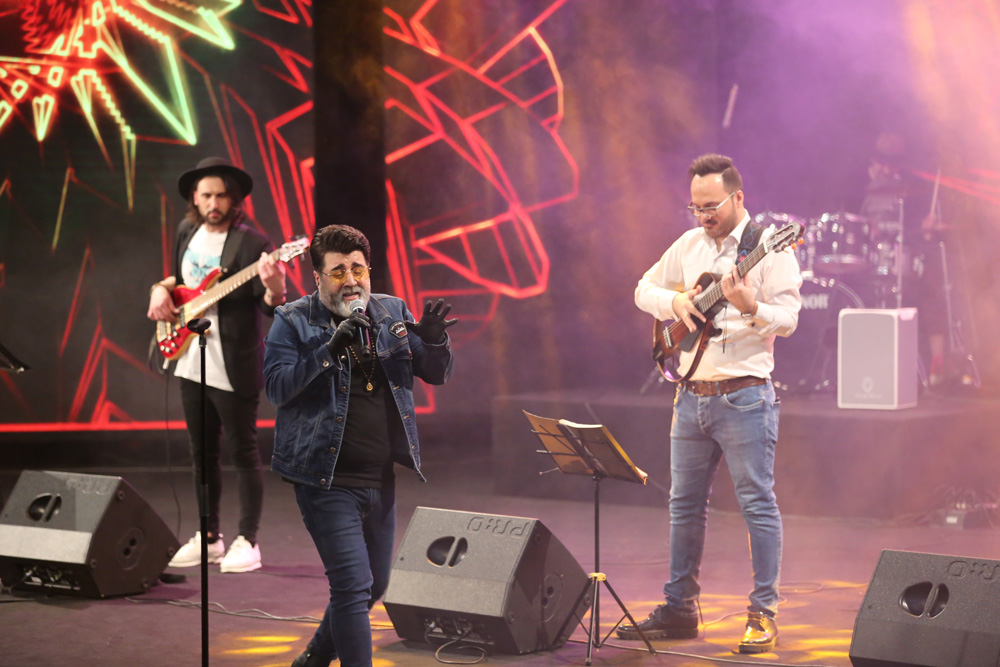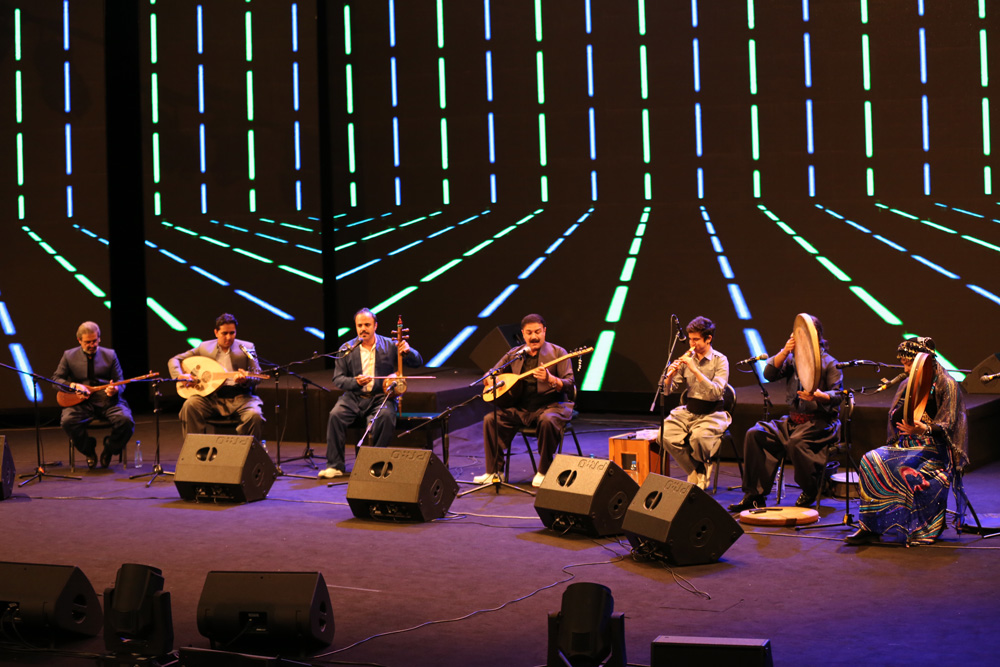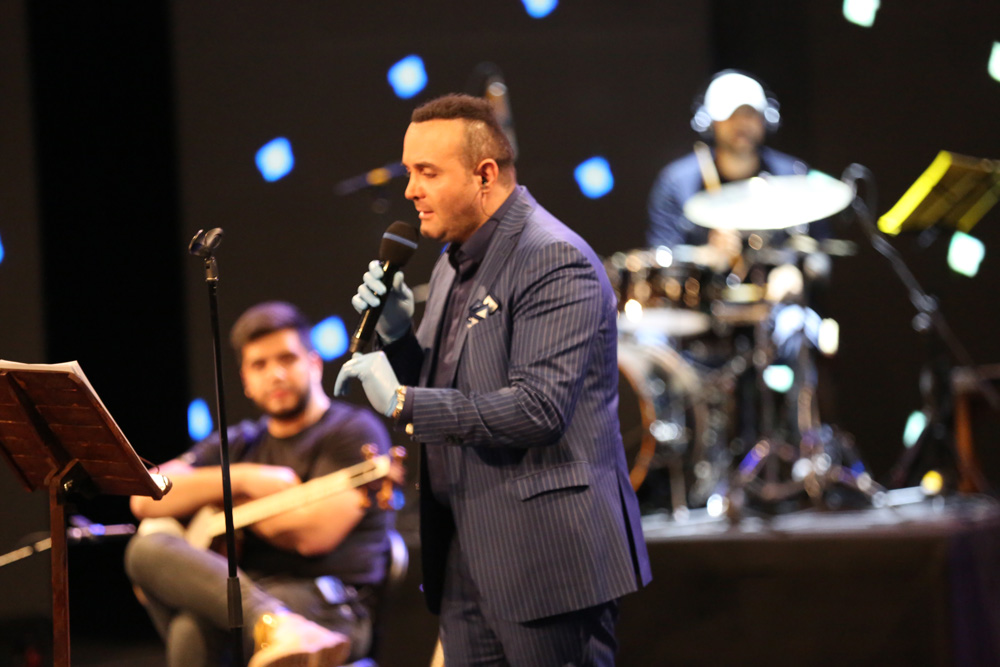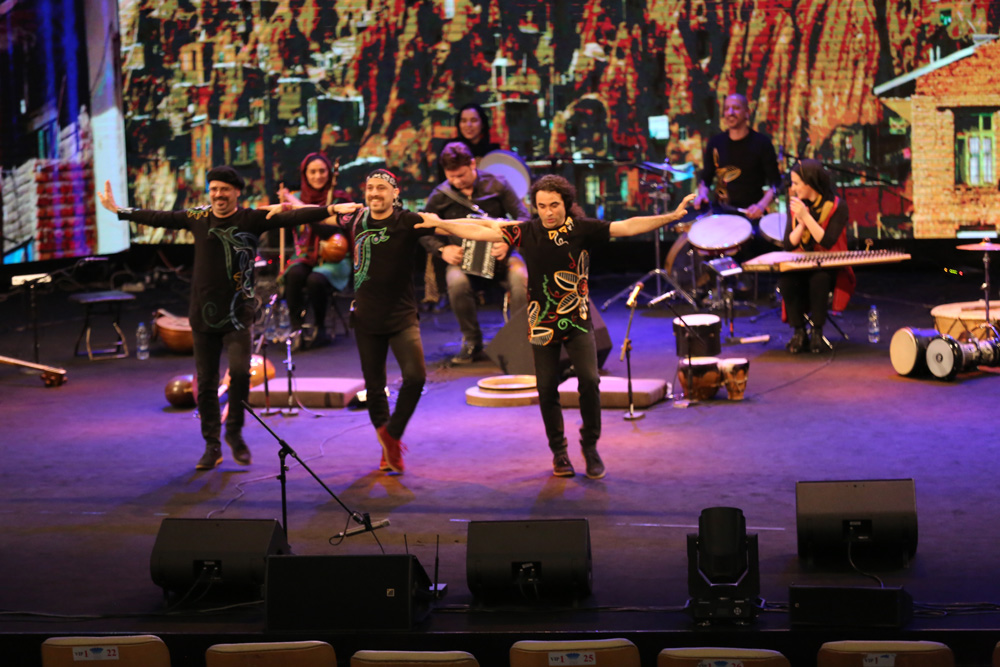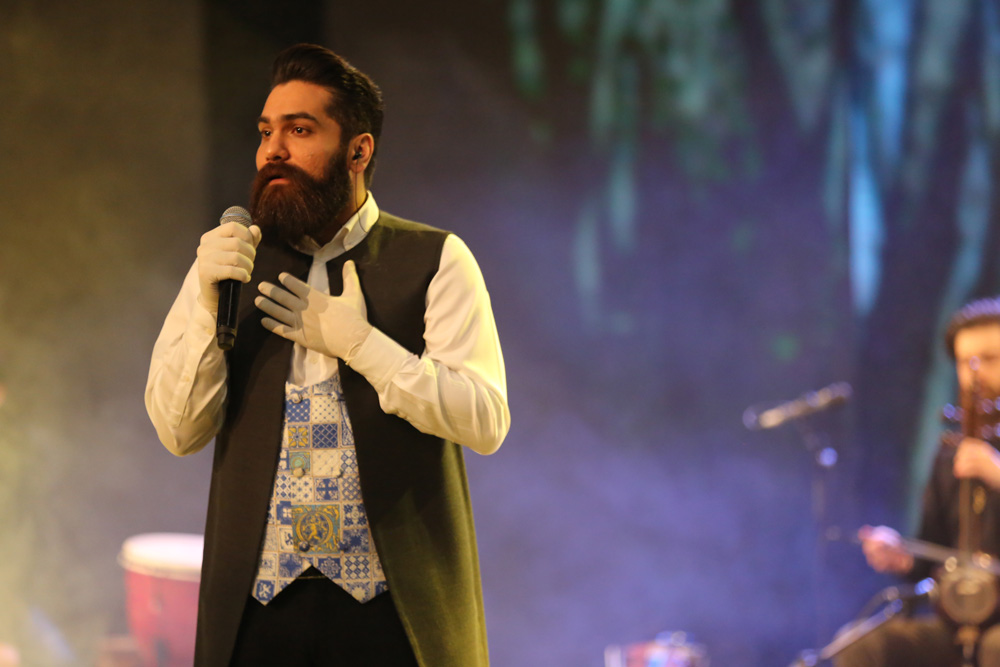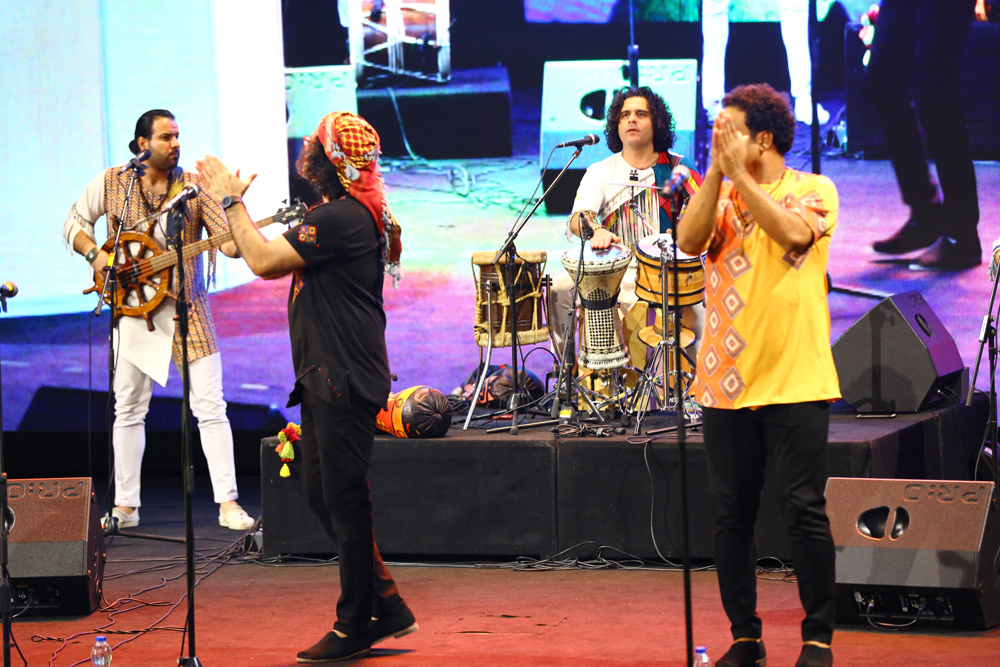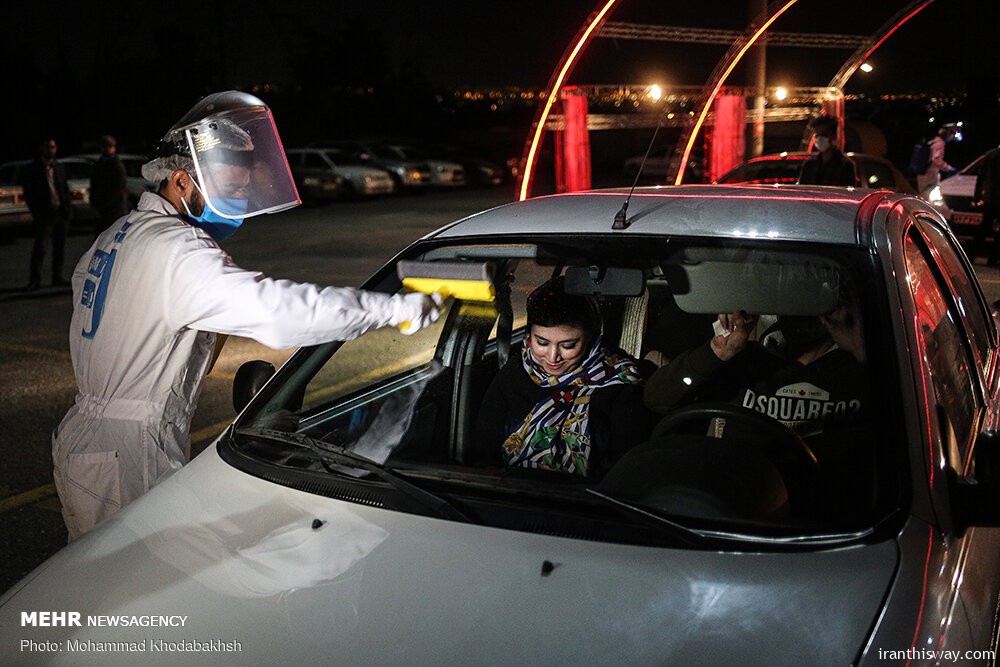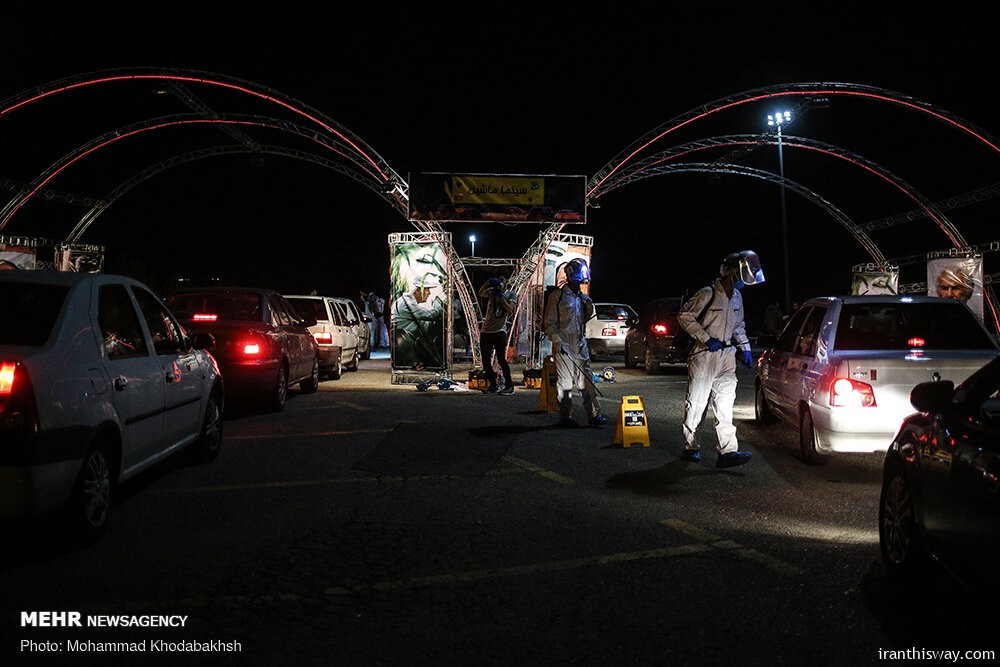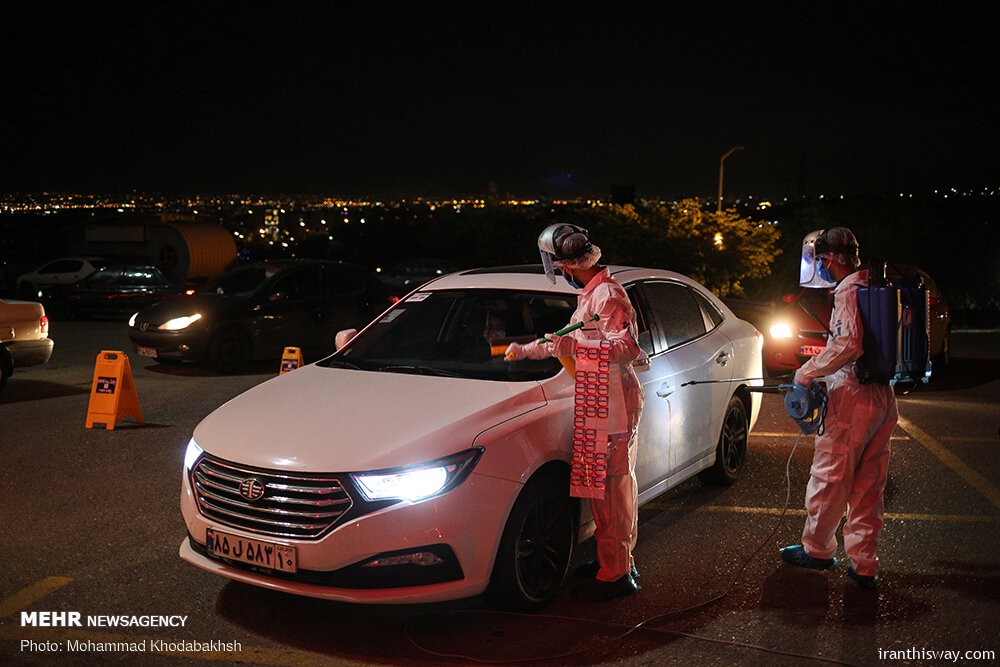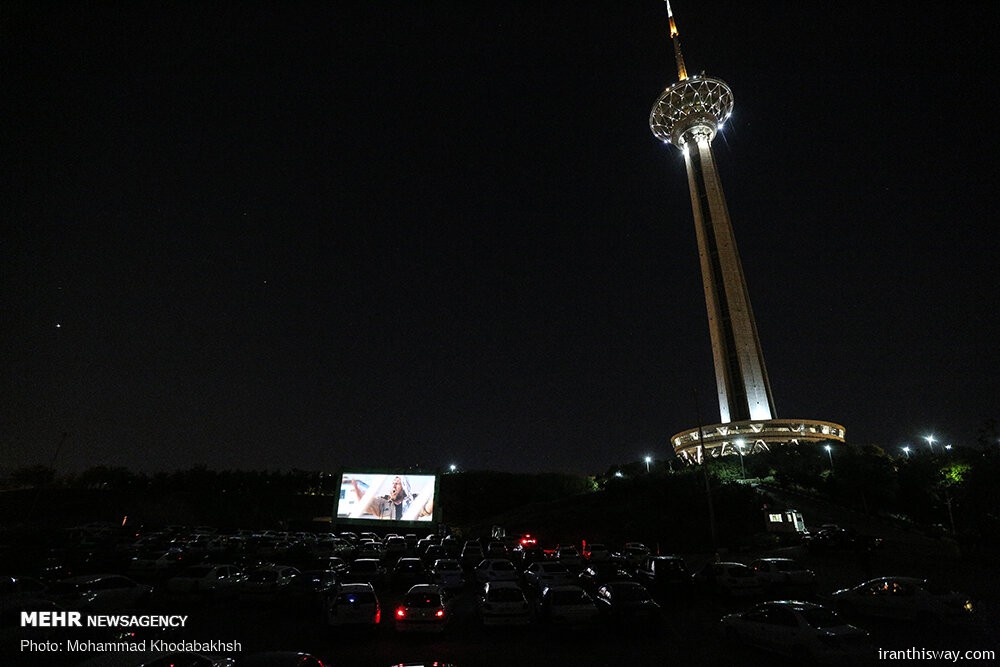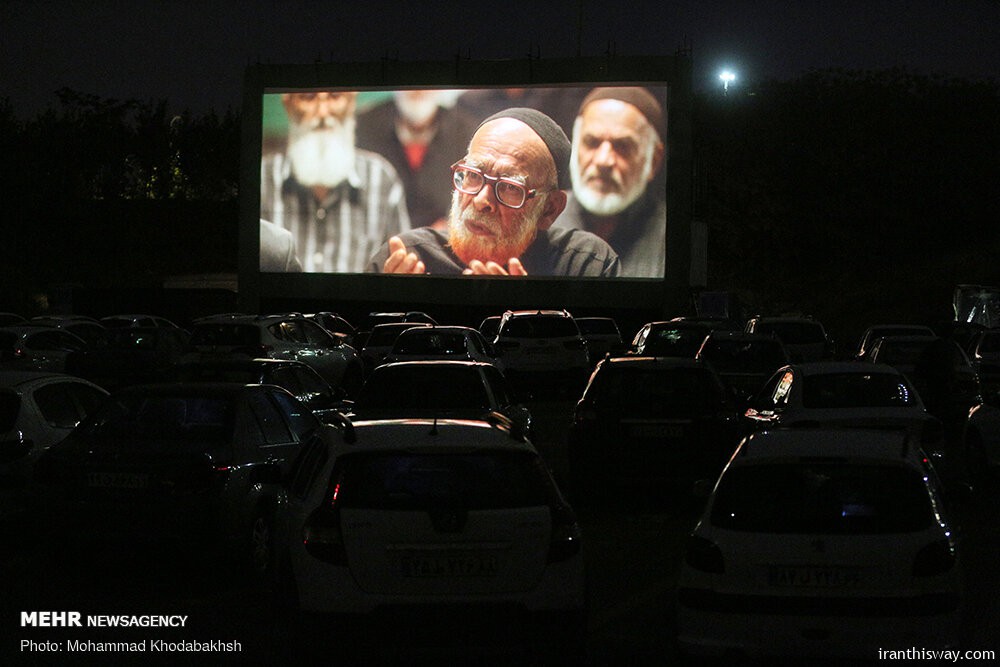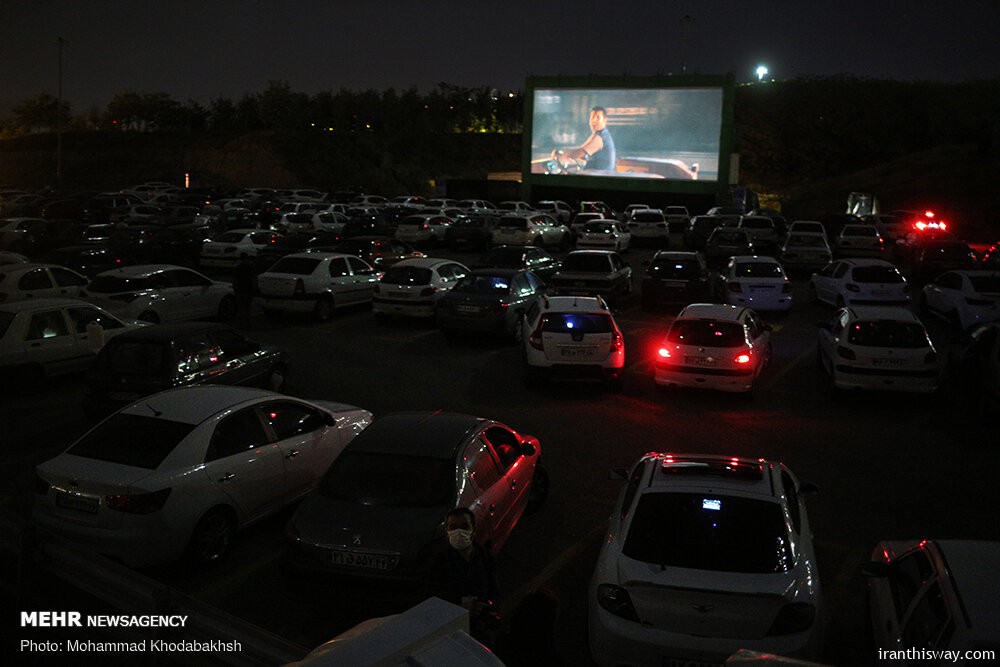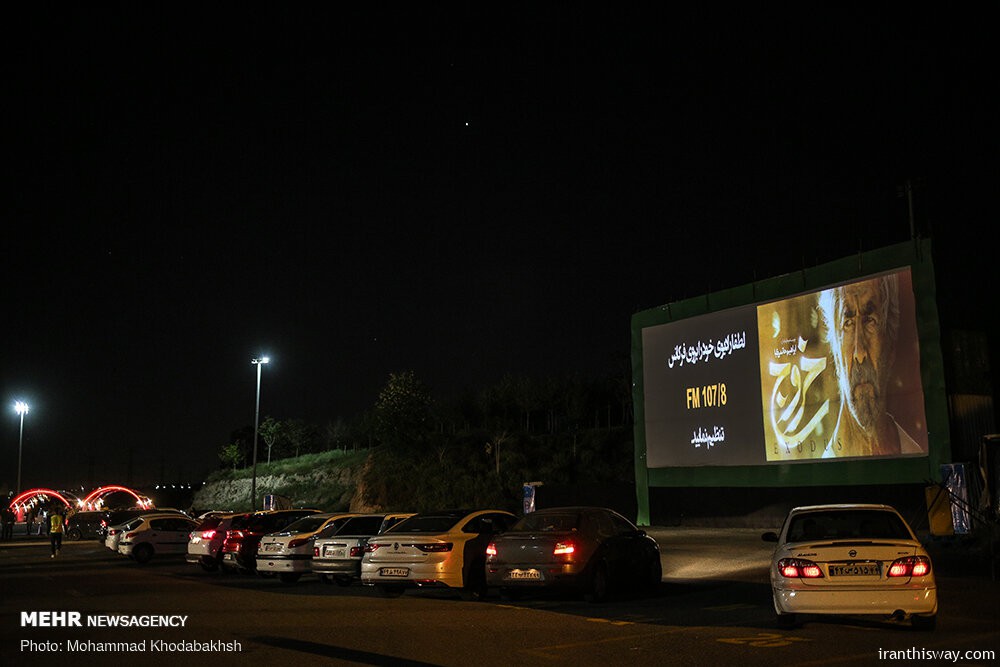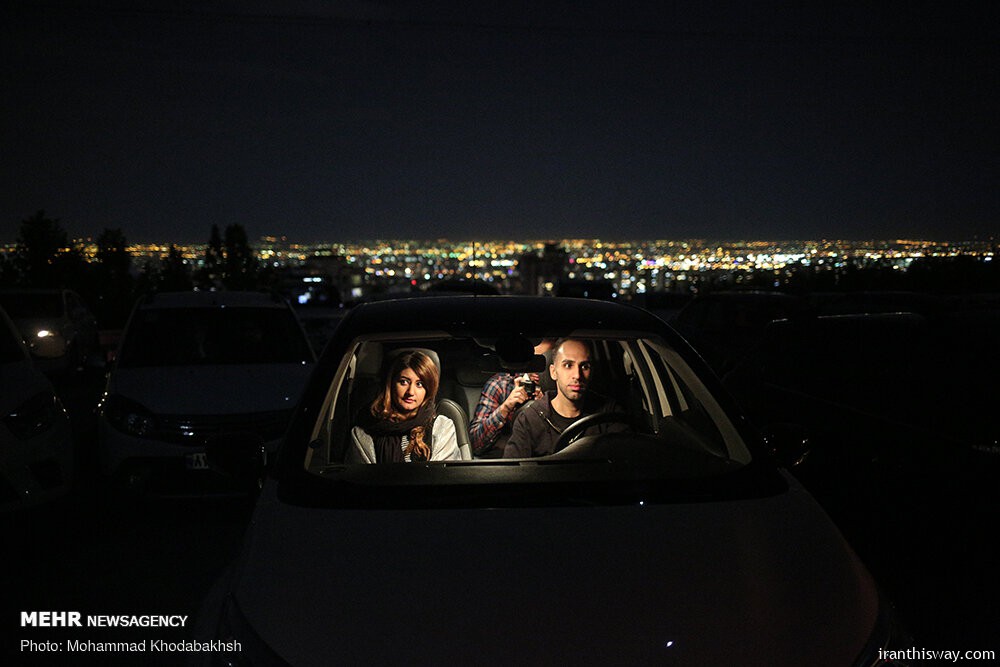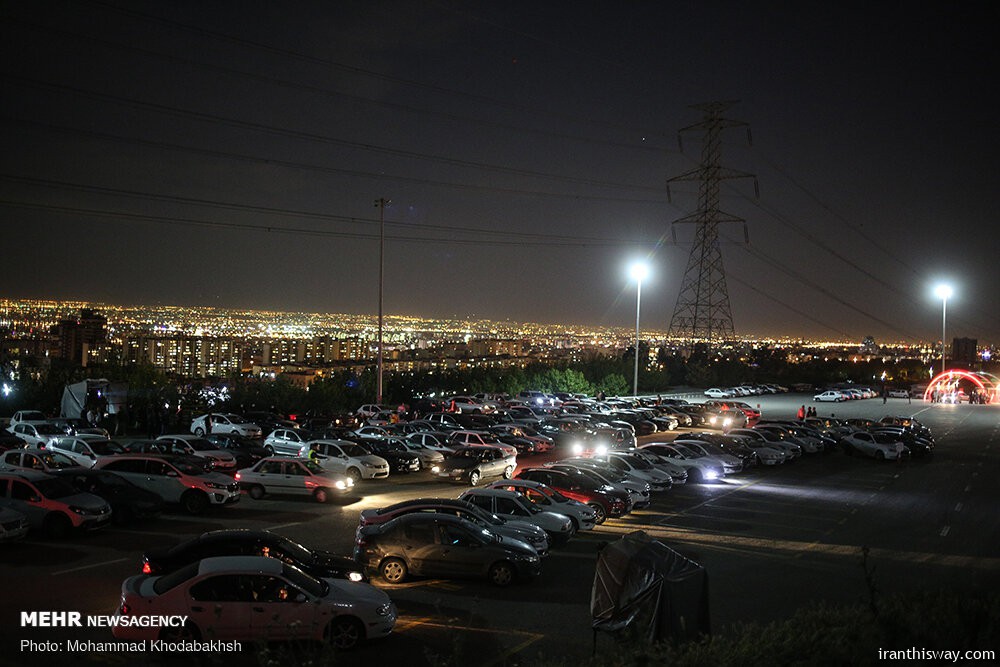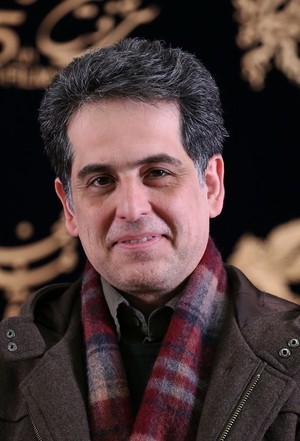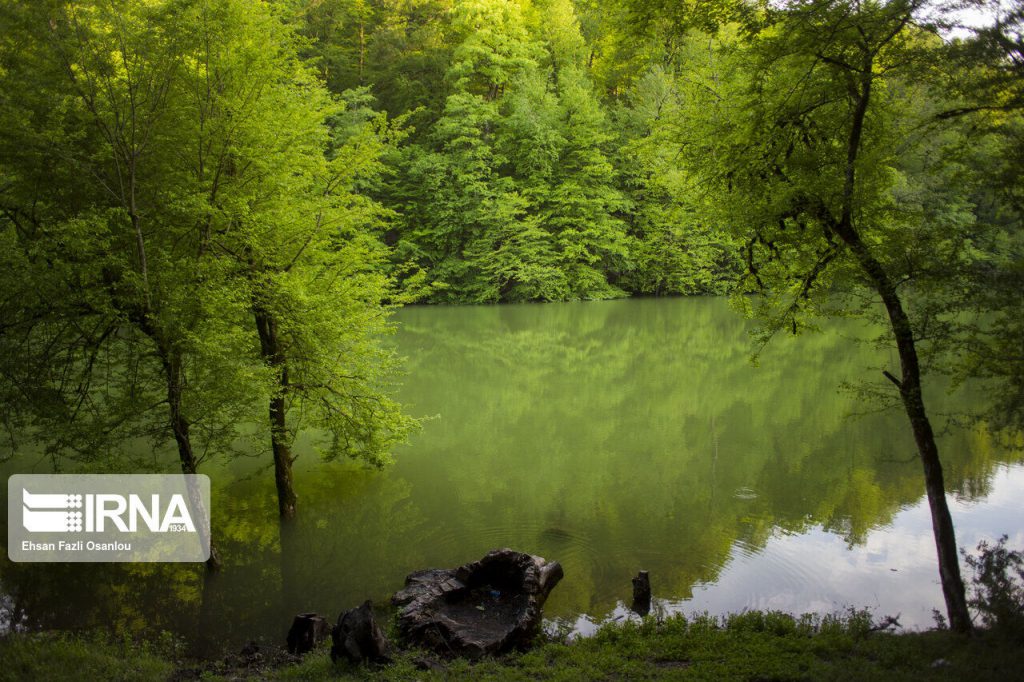The Iran’s national women’s golf free competition was held in the golf course of the Enqelab Sports Complex in Tehran with the participation of 50 athletes from 13 provinces in full compliance with Covid-19 health protocols.
Iran, China launch joint industrial center

China’s Shanghai International Association of Small and Medium-Sized Industries and Iran’s Small Industries and Industrial Parks Organization launched Joint Cooperation Center for Small and Medium-Sized Industries on Monday.
Iran’s Consul-General in Shanghai Ramezan Parvaz pointed to the historical ties between Iran and China and the role of the Silk Road in connecting the two regions and said that they enjoy good ties today as two independent states in the international arena.
Parvaz highlighted the commemoration of the 50th anniversary of establishing diplomatic ties between Iran and China this year, saying that Beijing and Tehran has upgraded their ties from a mere bilateral trade relationship to a 25-year strategic cooperation.

The newly launched cooperation center should facilitate exchanging and sharing information and help solve problems ahead of bilateral relations.

In the launching ceremony, China-based Iranian businessman Hossein Khalifi who is a senior advisor in Iran Chamber in Shanghai International Association of Small and Medium-Sized Industries was appointed as the head of Iran-China Joint Cooperation Center for Small and Medium-Sized Industries.
Legendary Iranian master Shajarian passes away
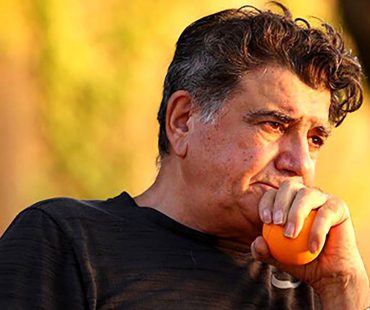
Legendary vocalist master Mohammadreza Shajarian, who was known as Iran’s king of song and once called himself the “son of Iran”, died on Thursday at 80 at Tehran’s Jam Hospital years after suffering from kidney cancer.
It was deeply shocking for his fans and the Iranian music community when the icon of Persian traditional music appeared in a video in the early days of Noruz, the celebration of the Iranian New Year celebration, in March 2016, wishing a happy New Year for Iranians and announcing that he was suffering from chronic kidney cancer.
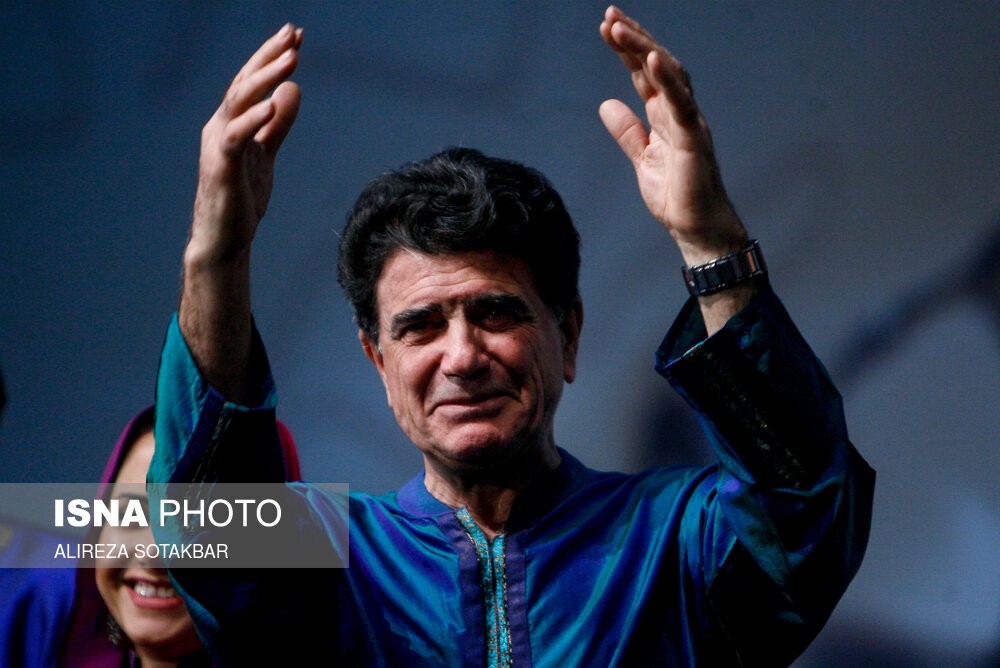
The two-time Grammy Award nominee called the disease “a 15-year-old guest” that is “friendly” with him and added that he would soon return to the stage, a dream that would never come true.
He soon left the country for Sacramento, California to receive treatment for the disease and returned home in September that year to resume his medical treatment in the country.
His fans were shocked several times over the past few years each time they heard that their beloved, highly popular artist was admitted to the hospital. In post-revolution Iran, no other artist could capture the hearts and souls of his people as much as him.
His popularity was not just limited to his art. His strong affinity with the people over the course of his lifetime made Shajarian their beloved artist. He was never once apathetic about the pain and suffering they went through.
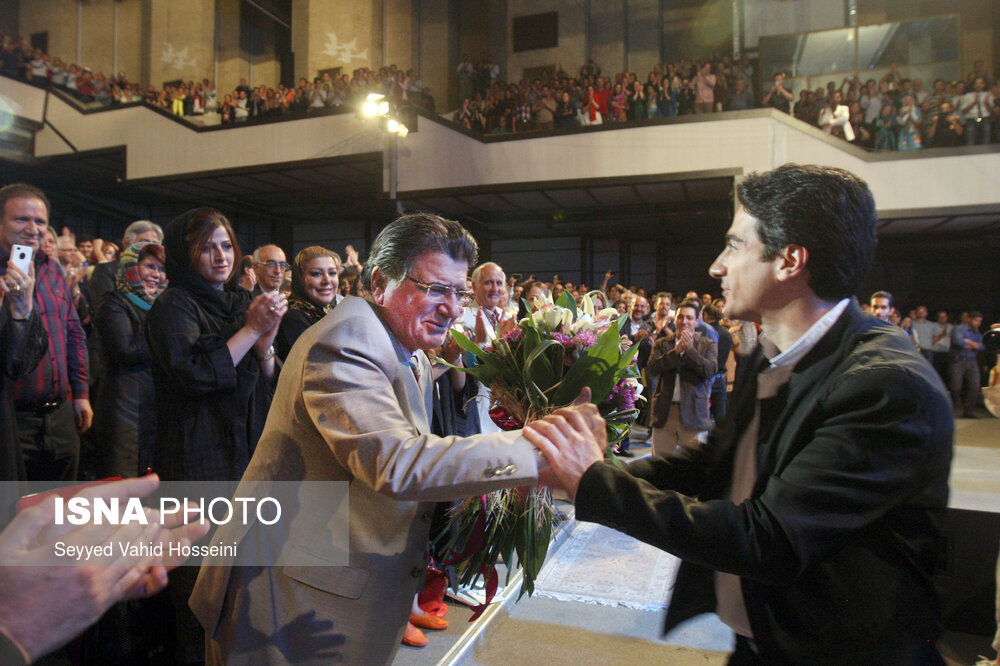
For example, shortly after the devastating 2003 earthquake in Bam, Kerman Province, which claimed tens of thousands of lives and flattened the town, Shajarian and his group, composed of his son Homayun, tar virtuoso Hossein Alizadeh and kamacheh master Kayhan Kalhor, organized benefit concerts titled “Compassion for Bam” to raise funds for the victims of the disaster.
The Bam Art Garden was born out of the rubble of the earthquake based on an initiative from Shajarian and his friends.
“I was like a drop that fell from the cloud, heading to the sea,” Shajarian once said during a celebration to mark his 73rd birthday in September 2013 organized by his friends and a number of Iranian art elites, including vocalist Shahram Nazeri, filmmaker Masud Kimiai and writer Javad Mojabi.
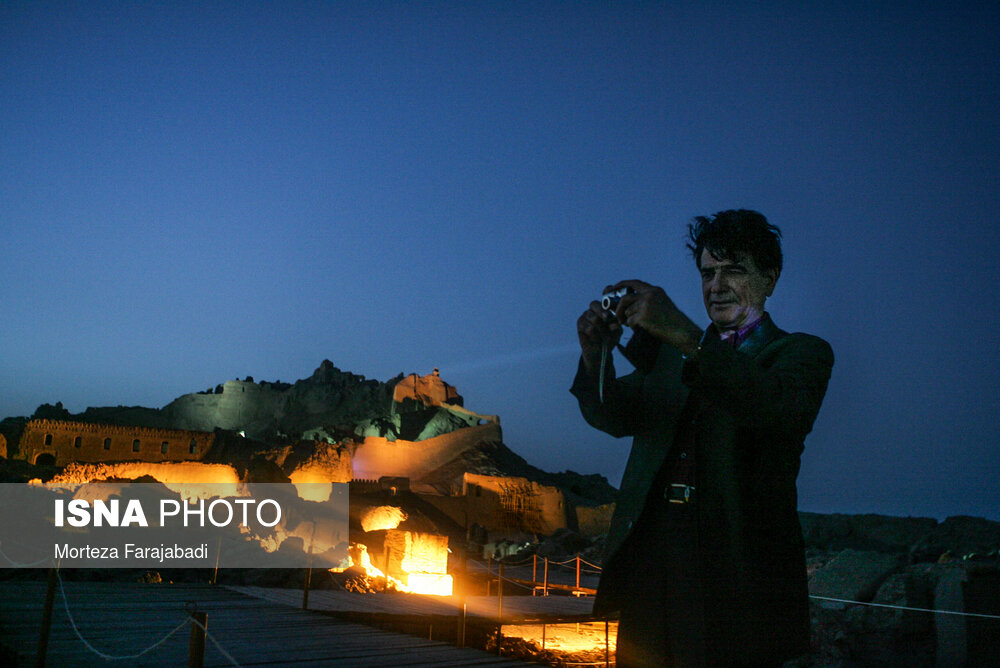
After Bam earthquake, 2003
“For me, the people of Iran and the world are the sea. And from childhood, I learned from my parents to share my happiness with others… I follow the way that people are going and the people are my most important asset. Today, many people live inside me and I live for them. Because I believe that life finds its mean with ‘you,’ therefore, I have tried to do my art for humans and humanity.
“We should first abandon our evil ways and wickedness to enable ourselves to live with others and hold meetings with them; meetings with others have always been important for me and I have tried to ignore my personal pride for the sake of national pride and culture.
“Life is difficult when we are under others’ steady gaze and spotlights, but today, the present the people give us is for having always loved them; I have tried to share my happiness with others and have regard for their concerns.”
Born in the religious city of Mashhad, Shajarian began his vocal career from childhood with his father who taught him Quran recitation. His recitations of the Holy Quran were aired by Mashhad Radio when he was only 12.

At the same time, he was also pursuing a career in vocal music.
In his early twenties, he left his hometown to pursue his singing career in Tehran. His father wanted him to respect his family’s reputation for their affinity with religious figures, so his singing was aired by Tehran Radio under the alias Siavash Bidgani.
Tar virtuoso Ahmad Ebadi, who was one of Shajarian’s close friends, met his father later, convincing him to allow Shajarian to sing using his true name.
His collaborations with Golha, a professional music program of Tehran Radio that had many top musicians, in 1972 opened a window of opportunity for Shajarian. He started a friendship with many elites of Persian traditional music who played a key role in the development of his virtuosity.

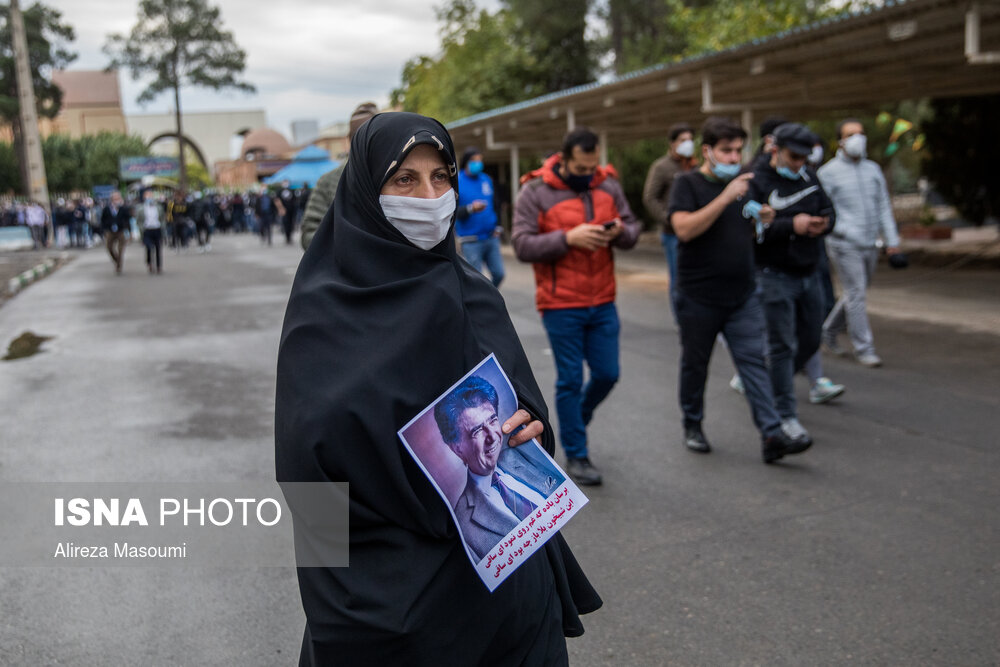
As he was completing his education with the top maestros such as Framarza Payvar, Nurali Khan Borumand and Abdollah Davami, he also pursued his Quran recitations professionally. In 1978, he finished first in Iran’s nationwide Quran competition. In summer 1979, he took second place in the recitation category of a Malaysian Quran contest.
He split from Golah, and consequently, radio in early 1978. “At that time, the program was not in harmony with my feelings. I felt that the radio’s policy was being made by cabarets and cultural triviality.”
His friends in the Sheida and Aref music ensembles also separated from the radio in protest at the killing of demonstrators on Black Friday on 8 September 1979. They teamed up to produce some protest songs, which were released in album series named Chavosh.
The epic song “Sepideh” (“Dawn”) composed by Mohammadreza Lotfi with a poem by their close friend Hushang Ebtehaj, who is also known by his pseudonym “Sayeh”, become a smash hit that Shajarian performed with the Sheida ensemble at National University in Tehran in 1980. “In Memory of Aref” and “The Soul of the Beloved” were among the albums Sheida recorded with Shajarian.
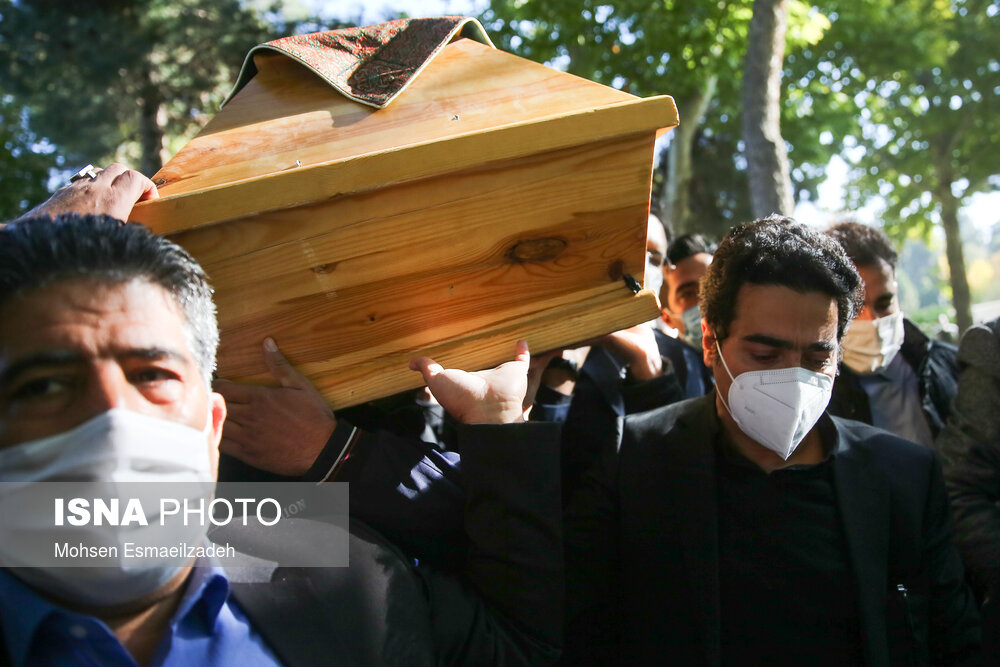
In 1980, a recitation of an invocation, known as “Shajarian’s Rabbana”, that he improvised for his students was recorded at Iran’s national radio. The divine recitation, which is composed of four verses of the Holy Quran, opens with a prelude featuring verses of a mesmerizing Rumi poem promoting the fast during Ramadan.
In 2017, the Cultural Heritage, Tourism and Handicrafts Organization registered “Rabbana” on the National Intangible Cultural Heritage list.
In his works, he began to perform in dastaghs and gushehs, the totality of melodies of the Persian traditional music system, which were sinking into oblivion at that time. This trend was highly inspiring for his pupils, helping save these unique systems.
In the 1980s, he pursued a teaching career in music courses, one of the outcomes of which was that his son, Homayun, is now a popular vocalist of the new generation.
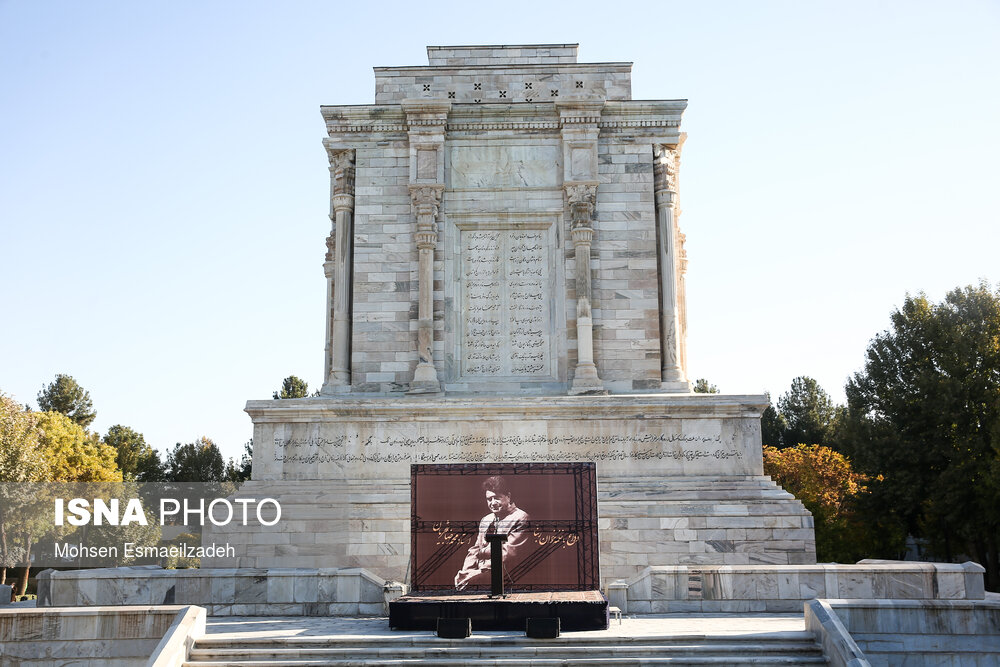
His collaboration with Aref, which was led by eminent composer and santur virtuoso Parviz Meshkatian, resulted in the creation of “Injustice”, “At Presence of the Beloved”, “The Dome of the Sky” and several other albums, which are considered an unparalleled treasury of Persian traditional music.
He worked with many musicians and finally in 2008, founded his own group Shahnaz named after his master and tar virtuoso Jalil Shahnaz. His daughter Mojgan and composer and tar virtuoso Majid Derakhshani were among the members of the ensemble, along with whom he embarked on a world tour in 2010, using his innovative instruments, including the sorahi, arghanun and barbad.
Shajarian was also quite agreeable to the innovations made by his son, Homayun, in the traditions of Persian song.
“Despite objections from those who are adherents of Persian traditional music, they [Homayun and his colleagues] are not in the least incorrect. However, they should beware of deviations. They should follow their own path based on the culture of their society; they should never go beyond due bounds in modernity, letting the next generation try their new items,” he once said in an interview.
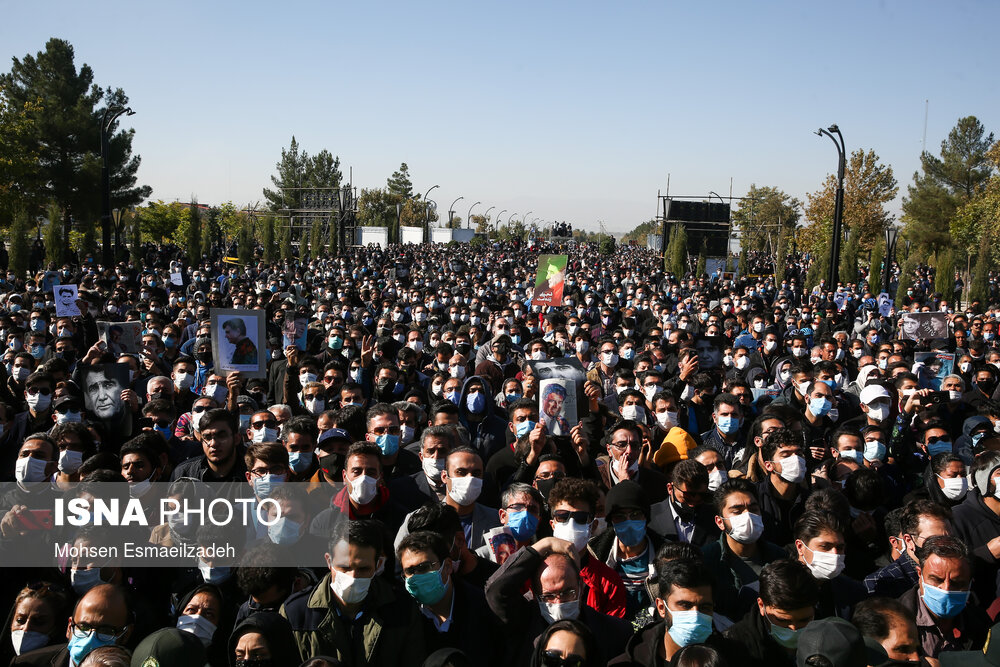
He was nominated for a Grammy Award in Best World Music 2004 and 2006, and was the recipient of numerous awards and honors, including a UNESCO Golden Picasso Medal in 1999. He was also decorated with France’s Chevalier of the Legion of Honor in June 2014.
Shajarian was also known for his skills in Persian calligraphy, and showcased his works in several exhibitions.
Once in an interview, he called himself “son of Iran” and added, “My vice is among the ancient vices of Iranians who wanted to be remembered for the type of people they were; people of humanity, love, peace and purity.
“We have no other message for the world than that of friendship, love, life and happiness. And if we complain it is to rid ourselves of social problems so our people can live.”
Shajarian married Farkhondeh Golafshan in 1961, but divorced her in 2000. He is survived by his widow, Katayun Khansari, and his sons Homayun, Farzaneh, Afsaneh and Mojgan from his first marriage, and Rayan, another son from his second marriage.
FM Zarif offers condolences over Iranian legendary singer’s departure
Iranian Foreign Minister Mohammad Javad Zarif in a message expressed condolences over death of Iranian legendary singer Mohammad Reza Shajarian.
“Maestro Shajarian was a great & true Ambassador of Iran, her children and—most of all—her culture,” Zarif wrote in his Twitter account on Thursday.
“I extend my deepest condolences to Iranians across the world and partcularly to his loved ones” he added.
“From God we come and to Him we return.”
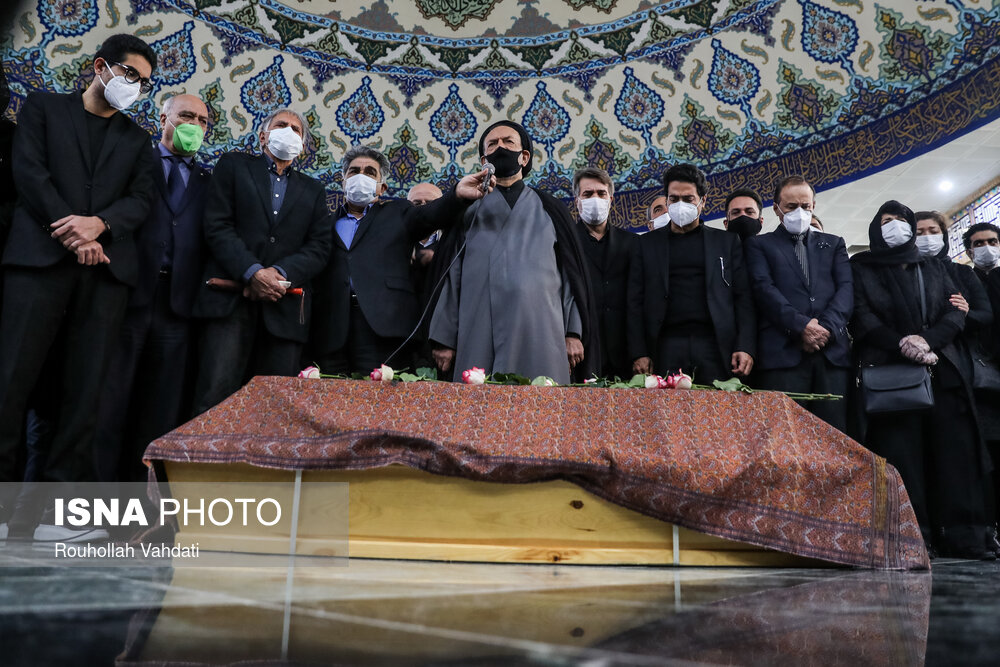
Tributes pour in for world-renowned Iranian vocalist
United Nations, diplomats, Iranian and foreign ambassadors and embassies in separate messages late on Thursday offered condolences on the demise of the veteran Iranian singer Maestro Mohammad Reza Shajarian.
UN representative office in Iran said in a message that the demise of the great Iranian vocalist Mohammad Reza Shajarian caused deep grief and sorrow.
“We on behalf of the UN family in Iran express condolences to Shajarian’s family and all his lovers in Iran and world. May the departed soul rest in peace,” the message said.
Iran’s Embassy in Zagreb in a tweet also extended condolences to the honorable and culture-loving compatriots, as well as lovers of Iranian culture and art, the death of the great Iranian vocalist and the internationally acclaimed figure.
Meanwhile, Swiss Embassy to Iran expressed sincere condolences on the demise of Maestro Mohammad Reza Shajarian. “Switzerland will cherish the memories of his concerts in Lausanne and Zurich.”
The British Embassy in Tehran also extended condolences to all his fans on the departure of one of the most prominent figures in Iranian traditional music of the last century.
Iran’s Ambassador to Azerbaijan Republic also paid homage to the late vocalist on his Twitter, expressing deep regret over the loss of “a towering figure in international music”.
“Sun Children”: chance of winning in Venice 2020
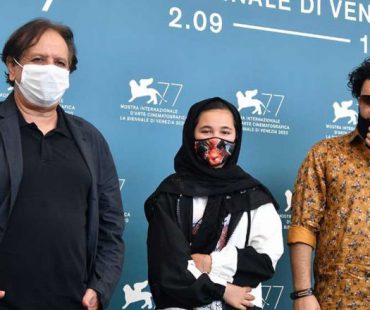
A film critic for the Hollywood Reporter, Deborah Young praised the Iranian film “Sun Children” (Khorshid) directed by Majid Majidi, saying the film should be a frontrunner in Venice competition.
“Iranian director Majid Majidi has made some of the most visually stunning and emotionally stirring films in world cinema about the plight of under-privileged, exploited and abused young people, and Sun Children (Khorshid) is one of his very best. The story of street boys commissioned by a local boss to dig for a treasure unfolds around an urban schoolyard and the clever, freckled face of 12-year-old Ali (Roohollah Zamani), a stereotype-buster of non-stop courage. The movie won best film, best screenplay and best production design kudos at this year’s Fajr Film Festival and should be a frontrunner in Venice competition,” Deborah Young wrote.
Khorshid Trailer (The Sun children, Iranian Movie)
“Majidi’s Children of Heaven (1998) was the first Iranian film to be nominated for an Academy Award in the foreign language category. Though Sun Children lacks the visual lushness and poetry that made Children of Heaven so seductive, its condemnation of child labor and the inaccessibility of basic education to the poor comes across with great force,” she added.
“Post-revolutionary Iranian films have often drawn from the well of children’s problems to outflank the censors and score their social critiques. The screenplay written by Majidi and co-scripter Nima Javidi (Melbourne) pins its outrage to a swift-moving, high-stakes plot that undercuts sentimentality and the conventions of the exploited-child genre,” Deborah Young went on to say.
“Sun Children” is one of the 18 feature films selected for the competition section and will compete for winning the festival top prize, the Golden Lion.
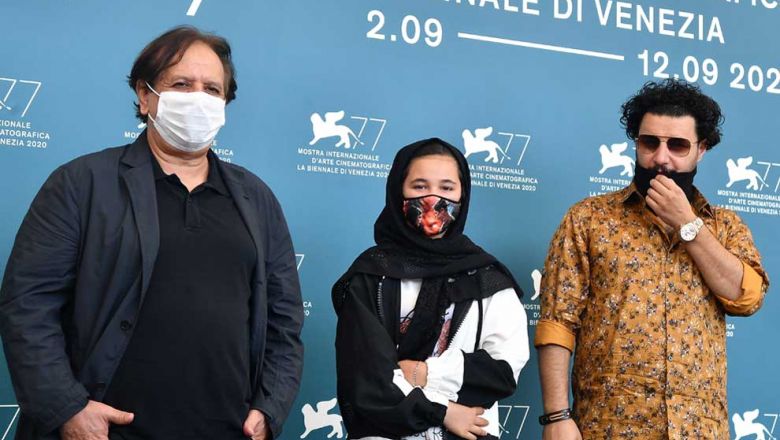
Khorshid (Sun Children) was directed by Majid Majidi (left) and features Shamila Shirzad (centre) and Javad Ezzati (right). AFP
The 77th Venice International Film Festival will take place at Venice Lido from 2 – 12 September 2020. This will be the first major international film event to take place physically since the beginning of the coronavirus pandemic.
Street kids are ‘whole world’s problem’: Iran filmmaker at Venice
It took Majid Majidi four months and nearly 4,000 auditions to find the dynamic street children stars of Khorshid (Sun Children), the Iranian director’s latest movie premiering Sunday in Venice.
But the five kids lucky enough to be cast – one of whom accompanied Majidi to the prestigious Venice film festival on the Lido – are just a handful of the world’s 152 million street children who face a grim future without society’s intervention, the director said.
“Many of these kids are selling items in the streets, or underground. They have the worst conditions but it’s not limited to Iran, it’s everywhere, unfortunately.”
Despite the heavy subject matter, an adventure story plot and Majidi’s ability to find humanity and humour in the face of adversity help highlight the spirit, intelligence and potential of Majidi’s young subjects.
In the film, 12-year-old Ali [Rouhollah Zamani] and his three friends help support their families through odd jobs, even stealing a tyre or two. One day, they are told a hidden treasure is buried underneath a school for street children. To dig for it, they must enrol.
Majidi said he deliberately sought a light touch, even including unexpected moments of humour that had the audience cheering at a press screening.
“The topics are already very sad, very heavy. So in order to be able to keep the viewers engaged, you don’t need to force them into a heavy, sad situation,” Majidi told AFP, speaking through an interpreter.
“I wanted to do a mixture of light and heavy and play between those so people can stand to watch this misery.”
The film is one of 18 in competition for the festival’s top prize, the Golden Lion.
Working at five
Just before departing for the festival, lead actor Zamani tested positive for coronavirus and could not travel, Majidi said, adding that the youngster was fine, though disappointed.
Actress Shamila Shirzad, 13, made the trip, however. In the film, Shirzad and her younger brother played roles that differed little from their actual lives. As Afghans without papers in Tehran, they worked selling items in the subway while living under the constant threat of their family being sent to a refugee camp.
“I was born in Iran and started working when I was five and went to school,” where Majidi found her, she said at a press conference.
Some three to four million Afghans are currently living in Iran, their situation worsened by their illegal status and the prejudice they face, said the director, whose 2001 film, Baran focused on Afghan refugees in Iran.
Majidi warned that the plight of street children was not limited to one country or region, saying the world could not afford to ignore these kids’ potential.
“These [children] are supposed to be the future of humanity, and what is happening to the future of humanity is disastrous,” Majidi said.
Responsibility goes “beyond the state,” he said.

“The responsibility is to understand and be aware of the children’s situation, and that concerns us all, not just those who govern us.”
Majidi and a number of crew members are on the Italian Lido to promote the film at the major international film event.
“What is portrayed in the film is a global issue that is not limited to one country, but the damage some West Asian countries are facing due to wars is more serious,” Majidi lamented.
“Our country has been under severe sanctions imposed by the U.S. government over the past 40 years, and at present, since coronavirus is a mutual affliction all over the globe, one of our most serious problems is that these sanctions threaten access to certain medicines,” he added.
He said that children and families are most vulnerable to wars and political upheavals, and added, “Iraq, Pakistan, Afghanistan, Turkey and our other neighboring countries are always suffering from wars and political crises.”
One of Iran’s serious problems is that people have illegally emigrated from these countries to Iran as a result of the wars and regional crises.
The cast members of “Sun Children”, Shamila Shirzad and her brother, Abolfazl, are two children born to an Afghan family in Iran.
These two, as well as other child members of the cast, were selected through auditions that Majidi held among the children making a living from peddling in the Tehran metro.
“A key topic the film intends to emphasize is the social responsibility people have in their societies,” Majidi said and added, “Governments are not my problem in this film, but I want to say that people should fulfill their own social duties and responsibilities on each issue.”
In their Twitter accounts, Cinema Organization of Iran director Hossein Entezami and Fajr Film Festival president Ebrahim Darughezadeh praised Majidi’s remarks during the press conference at the Venice festival.
“An artist is the voice of the people,” Entezami commented, while Darughezadeh wrote, “Majidi used the opportunity at the Venice festival to condemn the oppression of the Iranian people and violation of their rights.”
Celluloid Dreams, a major French film production and distribution company, is handling international sales. “Sun Children” premiered during February in Tehran at the 38th edition of the Fajr Film Festival, which honored it with the Crystal Simorgh for best film.
Co-written by Majidi and Nima Javidi, the film also won the award for best screenplay.
Iran tourist flights resumed despite outbreak
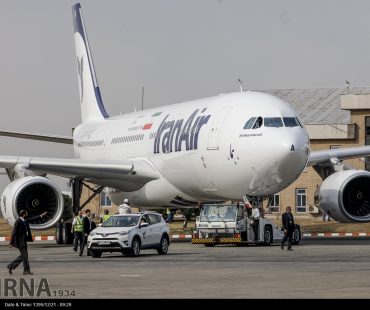
Iran Air lines will resume flights between Tehran ,Istanbul and Dubai after Coronavirus Covid-19 outbreak.
Iranian airline to resume Tehran-Istanbul flights
Iran Air, the airline of the Islamic Republic of Iran, will resume flights between Tehran and Istanbul as of Monday, July 13, according to an official.
The head of Iran Air Public Relations Office, Hossein Jahani, said on Sunday that the airline will operate its first flight along the Tehran-Istanbul route on Monday after a four-month hiatus.
Iran Air is scheduled to operate two flights per week (Mondays and Fridays) from Tehran to Istanbul and vice versa, the official added.
Flights between Iran and Turkey were suspended about five months ago from the closure of borders due to the coronavirus outbreak.
In early March, based on the coordination between Iran and Turkey, two special flights were conducted from Istanbul to Tehran to bring home the Iranian visitors stranded in Turkey.
The two countries are considering reopening borders and resuming the flights which have been suspended since March over the COVID-19 pandemic.
Tehran-Dubai tourist flights resumed
The tourist flights of Tehran and Dubai have been resumed since July 09 during the outbreak of the novel coronavirus, COVID-19, by observing health protocols.
An Iranian Airline revealed the remarks on Sun. and announced, “the passenger flights of the Airline en route Tehran-Dubai-Tehran have been resumed since Thursday, July 9 amid the pandemic by fully observing health protocols and guidelines.”
In addition, the Airline has also revealed the launch of a daily flight via this route by full compliance with health guidelines.
It should be noted that passengers are admitted only with a tourist visa or a valid stay permit so that admitting passengers in transit form is impossible until further notice.
Exclusive| Online concerts bring musical joy to Iranian families in coronavirus lockdown
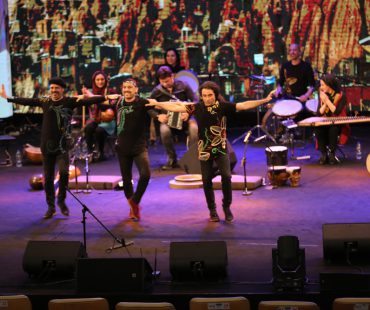
Sadeq Hosseini, Farbod Khalili: Nowrouz, the Persian New Year, is by far the most important date in the Persian calendar. The two-week holiday that heralds the spring comes packed with a string of ancient traditions that include family visits of course. That tradition – like many other facets of our lives – was transformed by the unfolding drama of the COVID-19 global outbreak.
Nowrouz under coronavirus lockdown meant no family reunions, no gifts and no dinners, but also meant no parks, no cinemas and no concerts. So Tehran’s municipality came up with a brilliant idea to bring some musical joy to Iranian families in quarantine during these hard times; to livestream one concert every single night of the 15-day holiday.
So on Friday April 3, the NowrouzKhaneh campaign was launched. The concerts were live-streamed on 46 different websites and platforms (ipTVs, VODs – Video-on-Demand). They were also streamed live on Instagram.
Before the pandemic closed down businesses and sent everyone home self-quarantining, Milad Tower was one of the main cultural hubs of Tehran, hosting major festivals and holding various other cultural events. So, the venue was rightfully picked to host the online concerts during coronavirus lockdown.
The Milad Tower standing at 435 meters, the world’s sixth-tallest tower dominates the capital’s skyline.
The online concerts in Coronavirus days on Nowrouz 2020 performed by:
Omid Hajili
Mehdi Jahani
Rouzbeh Bemani
Azeri group of Master Vahid Asadollahi
Reza Yazdani
Rahim Shahriari
Hamid Asgari
Gil and Amard Group, Nasser Vahdati
Mehdi Yaghmaei
Kurdish group Zhavana, Sadollah Nasiri
Hamid Hami
Sina Sarlak
Rastak group
Ali Zandvakili
Lian Bushehr Group
Tehran municipality: Initiative aimed for concert-virgins under quarantine
Mohamad Reza Javadi Yeganeh, Deputy of cultural & social affairs of Tehran municipality said: “Since people could not leave their homes during the New Year holidays, we sat together and came up with the idea of online concerts or concerts in empty halls. The idea was to bring the concerts to people’s homes. We also had the concept of fair distribution in mind. Many people in Iran had never been to a concert both due to cultural and economic reasons. Tehran Municipality joined forces with the culture ministry, and Iran Broadcasting (IRIB) [to make this happen] via ipTVs and VODs.”
“Bands selected from pop, traditional, folklore genres to appeal to all”
We selected pop, classical and folklore music bands to appeal to all different tastes in Tehran. Given the unknown risks involved, many of the bands were unwilling to participate. The idea of ‘a concert without a crowd’ was far-fetched to some, director of cultural affairs department in Tehran municipality said.
“Tiva TV broadcast concert signals to over 40 platforms”
Majid Sahaf, channel director of Tiva IPTV about broadcasting the concerts said: “Tiva readily picked up the offer by Tehran Municipality, given its technical capacity and experience in the field. We were required to transmit the signal [of the concerts] to all various platforms and streaming services all around the country. And we made this operational. From the first night on, over 40 different platforms used our services. And this went on for 15 consecutive nights. Most of the people used the easiest mode of access which was through web streaming. Their next choice was applications, android and iOS respectively, and finally smart TVs. Many were doubtful about the internet infrastructure in the country. But we faced no issues in receiving and transmitting the signal. People also had no issues streaming at home. No complaints were recorded in these 15 nights.”
Tehran mayor:
Online concerts well received by people
Tehran mayor: Online concerts well received by people
Pirouz Hanachi, Tehran Mayor said: “It’s definitely been a positive experience because the world is also following suit. Many famous musicians are performing online these days. I think we set a record [of viewers]. We exceeded the five-million mark in mid-holidays. People well received the concerts.”
Gholamhossein Mohammadi an advisor to Tehran’s mayor wrote on twitter that:
“A brilliant idea enabled five million people who’d joined the StayHome campaign to fight the spread of coronavirus to watch live the first-ever online concert broadcast from Milad Tower. Tehran’s municipality feels compelled to protect the health and wellbeing of citizens.”
“Iranians, expats watched online concerts”
Javadi Yeganeh mentions that: “Level of participation was beyond our expectations. Part of this came from Tehran and the rest from outside Tehran and even overseas. The President Rouhani expressed his gratitude.”
“Over 30 million unique IPs streamed online concerts”
Director of cultural affairs department in Tehran municipality informed: “According to the numbers we received daily from the association of IPTVs, over 30 million unique IPs watched the concerts in these 15 nights. The biggest achievement of the online concerts was making culture and music accessible to all walks of life in the country during the difficult quarantine days”.
But did the concerts truly attract people’s attention or was this remark an empty official rhetoric?
“The first time I watched an online concert was about 30 something days into my home quarantine. Although I had kept myself busy with different activities, I was feeling depressed and in low spirits. It was quite a surprising scene; the concert was being held in an empty hall but apart from that it was like a normal concert with the stage and props and things like that. After performing each song, the singer would call up and introduce one of the band members who then would bow to the camera. In normal circumstances, the crowd would applaud him but since the hall was empty, there was no applause, and the artists would only bow to a quiet hall. It was a strange and surreal experience. Nonetheless, the experience felt very real to me. Although I was at home in my PJs and drawing while watching the concert, every time I enjoyed a performance I would clap to it as if I’d actually been there in the concert hall. So it was a really interesting experience.”
Fatemeh Tehrani, Tourism Activist
“In these monotonous and boring quarantine days, watching live an hour-long concert by Reza Yazdani was a big surprise for my wife and I. I’m sure its memory will stay with us for years to come.”
Mohsen Saemi, Construction Project Manager
“I always thought going to concerts was an expensive activity, and given the inadequate infrastructure, only a few people could experience it, maybe not more than 2% of the population. But when I was watching these online concerts with my family at home, I felt that now with these concerts, many people can experience -at least to some extent- how live concerts really feel.”
Seyed Milad Nazemi, Journalist
“In these times while some still haven’t grasped the gravity of the situation and think all these safety measures and home-quarantining are nothing but an unnecessary obsession, with others panicking and getting depressed from staying home for long periods, the municipality’s introduction of the initiative only shows the gravity of the situation and the halt in normal day activities. On the other hand, it shows it cares about people and has plans for their lockdown days to make them more tolerable.”
Mahsa Mousavi, Neurologist
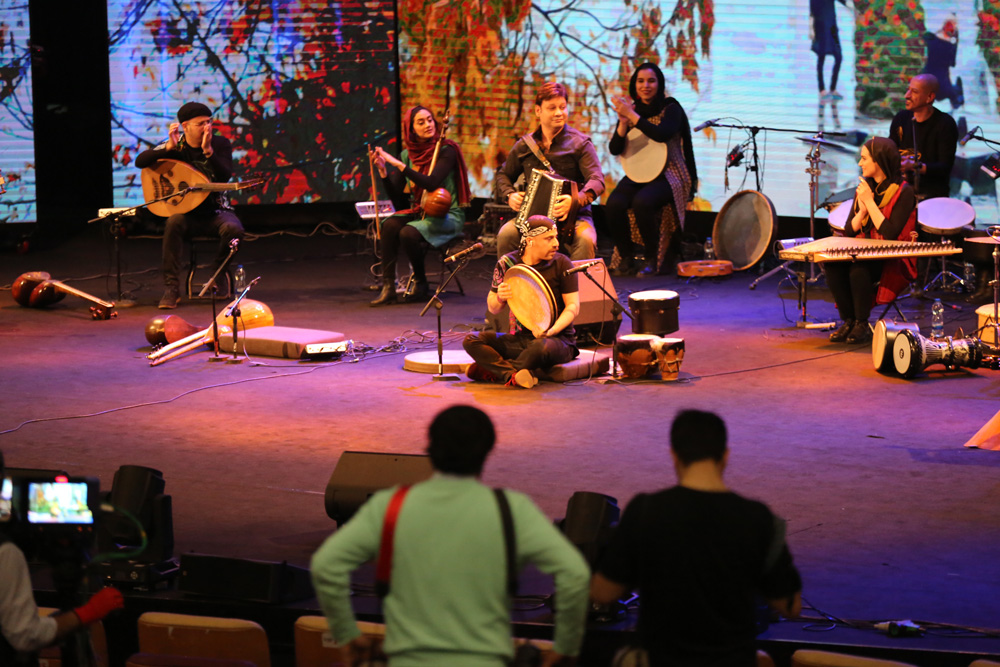
The musicians also welcomed the municipality’s initiative:
Rastak Singer: Online concerts in coronavirus lockdown ‘innovative idea’
Farzad Moradi, Singer, Rastak Music Band Emphasized: “I think Iranians are culture and art-loving people who enjoy going to concerts; something that has been missing from their lives [as a consequence of the coronavirus lockdown]. We are glad to see the Municipality organize the events despite all limitations. It was an innovative idea. I hope artists can use this platform for as long as the disease is among us. Our performance is audience-oriented. To be honest, we have never had any such experience before, and It was really difficult. During our concerts, given our considerable experience, our main concern is not music but the emotional give and take between us, the musicians, and the audience.”
First time experiencing concert in empty hall
Also Sina Sarlak, Singer said: “This is the first time in my whole musical career that I am performing in an empty concert hall.”
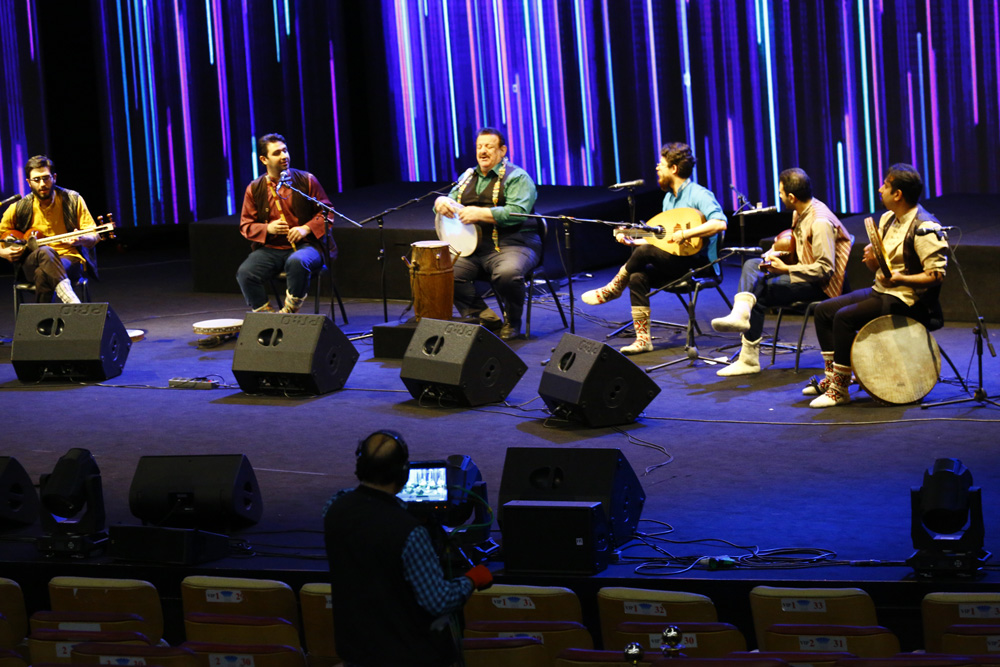
It could be really disappointing to see the concert that you have been counting days for postponed or cancelled altogether.
Both for fans and the artists themselves. That’s why musicians of all stripes and sizes from all around the world are taking to social and streaming platforms these days to play live for their fans from their homes or empty venues.
This might be an intuition, or a false hope. But I strongly believe we will ultimately win the fight against COVID-19. The virus, however, is likely to stay among us for quite some time. So for the time being we have to learn to adjust to this new reality of life. This might come with some complications but also with some fortunate by-products like the virtual concerts. In the meantime, keep your safe distance with others and follow health guidelines.

Tehran Review
Episode 1, Online concert during coronavirus
Editor in Chief and Producer: Sadeq Hosseini
Reporter: Farbod Khalili
Cameraman: Saeed Naeeni
Edit: Amirhassan Saadati
Production: Iran This Way
In Cooperate: Shahr news agency and Commutation center of Tehran Municipality
www.shahr.ir
www.tehran.ir
Iranthisway.com

Iran drive-in cinema started again
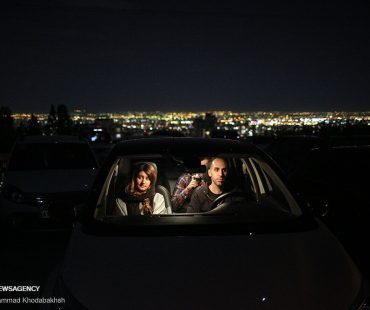
Tehraners enjoy the chance to experience the drive-in cinema at Milad Tower parking lot to watch Ebrahim Hatamikia’s latest feature, Exodus.
The first night of the program on Friday 1 may 2020 received huge welcome by cinema fans and all the tickets were sold out in less than two hours. Ordinary cinemas are still closed due to the novel coronavirus outbreak.
The first case of Covid19 in Iran was officially announced on February 19, 2010
Video| Iranian women music group performed online during Coronavirus
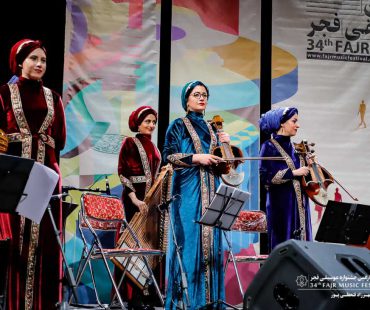
‘Khoniagaran-e Mehr’ the famous Iranian women traditional music group performed online during coronavirus. The first case of Covid19 in Iran was officially announced on February 19, 2010.
“Khonyagaran-e Mehr” is a female musicians band with a brilliant background, led by Behzad Abdi,that performs various concerts in persian music.
“Khonyagaran-e Mehr”, consists of twelve musicians, formed in may 2017. In August 2017 they held a successful concert at the Vahdat Hall with Mohammad Motamedi as a singer.
In October 2017, “Khonyagaran-e Mehr” performed at the “Eimehestan” festival in Armenia and received award from Culture Minister of Armenia.
In February 2017, “Khonyagaran-e Mehr” performed at the Fajr Festival with Vahid Taj as a singer.This performance was appreciated by the audience.
In july 2017, two music videos of Khonyagaran-e Mehr were displayed for a month in Expo of Kazakhstan.
In August 2018, “Khonyagaran-e Mehr” held a concert for Iranian ladies in Niavaran Cultural Center with a singer named “Sayeh Sodeyfi”.
In November 2017, the soloists of “Khonyagaran-e Mehr” held a concert with the Organizal Orchestra in Kostiol church in kiev, Ukraine.
In February 2018, “Khonyagaran-e Mehr” and Vahid Taj performed in Philharmonic Hall of kiev, Ukraine.
In February 2019, they performed at the Fajr Festival with Navid Norouzi as a singer.They also performed in closing the Fajr Music Festival.
In March 2019, they held successful performances in three cities of Germany : Berlin, Hamburg and Frankfurt.
In April 2019, they performed at the “le Magie des Hirondelles du Printemps” festival in Paris,France.
In April 2019, held concert in Bern,Switzerland.
In October 2019 held concert in Womex festival in Tampere, Finland.
WOMEX 19 is one of the world’s largest music events which hostd publishers, independent musicians, organizers, and state organizations in music every year from over 90 countries.
‘Khoniagaran-e Mehr’ founded and led by Behzad Abdi.
Mehrnam Rastegari (Kamancheh),
Samaneh Barouti, Nazanin Rousta (Qichak Alto),
Neginzadeh Vakili (Qichak Bass),
Hila Feyzpour (Tar),
Torgol Khaliqi (Tar and Rabab),
Seda Sedifi (Qanun),
Rokhsareh Rostami Daristani (Oud),
Bahareh Heydari (Tar Bass),
Sheida Ghazi (Ney),
Mehrnaz Dabirzadeh (Tombak and percussion instruments)
About Behzad Abdi
Behzad Abdi (born 1973, Tehran) is an Iranian composer of opera, film and television music
He came to international attention in 2006 with his “Nuclear Symphony”, commissioned by the government to celebrate Iran’s nuclear achievements.
The IMDb database cites film and television music for no less than 43 productions between 2010 and 2018.
Abdi studied setar and Iranian traditional music and also Western classical music at the Tchaikovsky Academy in Ukraine, beginning his studies there in 2003.
He has been described as “the first composer to write Iranian traditional opera fusing Iranian traditional and Western classical music.”
His opera “Rumi” from 2009, based on the life of Rumi, with libretto by Behrouz Gharibourm, and with Mohammad Motamadi, has been released on a UK label, Naxos.
Abdi is currently based in Kiev, Ukraine.
Photo: Beautiful lake created by earthquake

Spectacular places can change our minds, and this is the main reason for tourism. In light of the beauty of nature in Iran, we don’t need to go around the world to see spectacular landscapes, Churat Lake in Sari, Mazandaran province located 309 km from Tehran.
Photo: Ehsan Fazli, IRNA
Sari, Mazadaran
Sari is located on the foothills of the Alborz mountain range and the south of the Caspian Sea at the height of 22/7 m above the sea level.
This city has 2 mountains and plain parts. Moderate and humid summers and partly cool and arid winter are the climatic features of Sari. Sari consists of 6 parts naming ”Markazi“, ”Chahardange“, ”Dodange”, ”Kelijan Rastagh”, ”Roodpey”, ”Northern Roodpey”, four cities and 15 rural districts.
Sari is the biggest and the most populous city in Mazandaran province, one of the most significant cities in the northern region of Iran where there are in religious and historical places, various natural attractions as mountain, forest, plains and sea ports addition to vicinity to the margin of Damghan as a desert attraction which turned it into one of the attractive zones in Iran. The economy of this city depends on agriculture and foodstuff based on its natural situation so that it has the highest level of producing the sea products such as Caviar among all regions of Iran and neighboring countries, with the best quality in all around the world. Tourism industry, factories and companies such as Mazandaran wood and paper industries as the biggest paper producer in Middle East, wooden handicrafts and pottery industries are also highly important here People who live in Sari speak in Mazandarani and Farsi. The residents of this city are Muslim and followers of Davazdah Imami religion.
Ramadan in Iran with Coronavirus
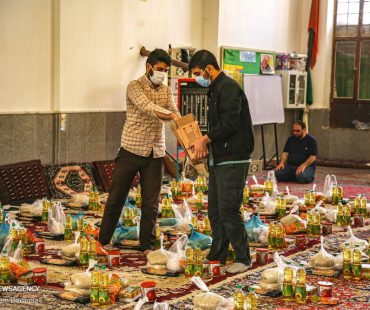
Saman Kojuri, Press TV: This year Iranians are observing Ramadan under the corona virus lockdown with bans on mass prayers.
Each year many practicing Muslims fast from dawn to dusk for the whole of the lunar month either 29 or 30 days depending on the moon sighting as part of the ritual of dedicating oneself to contemplation and prayer.
This year because of the deadly cornavirus, almost all Muslim-majority countries including Iran have closed mosques and asked people to pray at home to limit the spread of the disease.
In Ramadan, Muslims try to spend more time praying, reciting the Quran, and doing other religious social activities like helping the poor. Fasting is intended to bring the faithful closer to God and to remind them of the suffering of those less fortunate.
This year Iranians are observing Ramadan under the corona virus lockdown with bans on mass prayers.
Unlike previous years this year Muslims in Iran cannot mark the “Nights of Glory” at mosques and religious sites as religious leaders have called on people to hold praying ceremony at home to stay safe. Muslims believe the holy book of Quran was revealed to Prophet Muhammad almost 1400 years ago on the Nights of Glory.
During Ramadan, Muslims fast as an effective way of practicing self-discipline. They are also expected to strengthen their character through self-restraint charitable donations and introspection.
